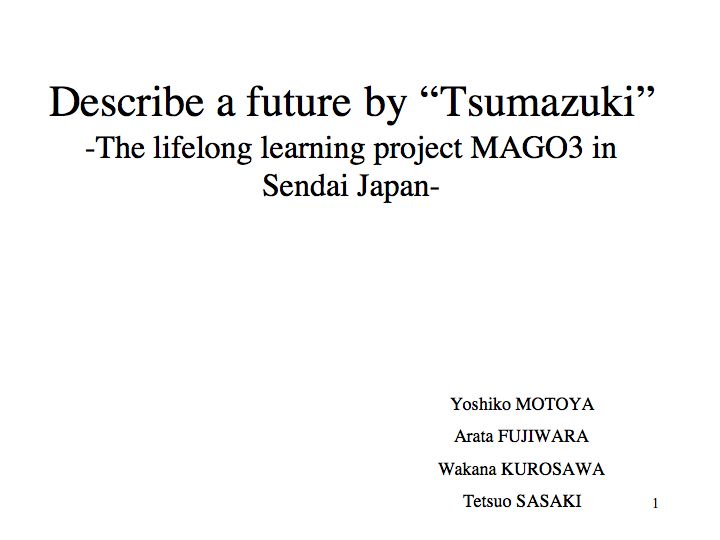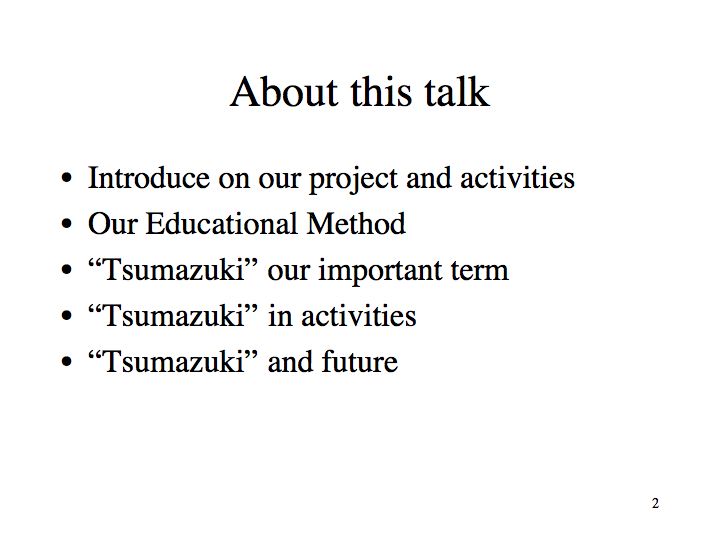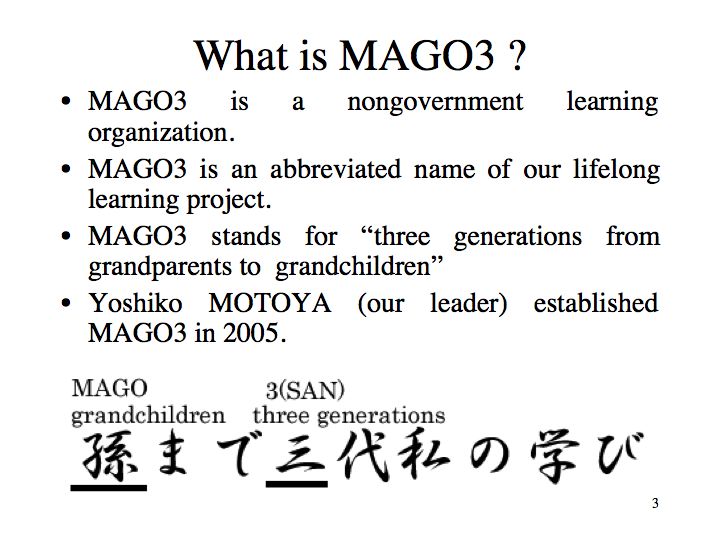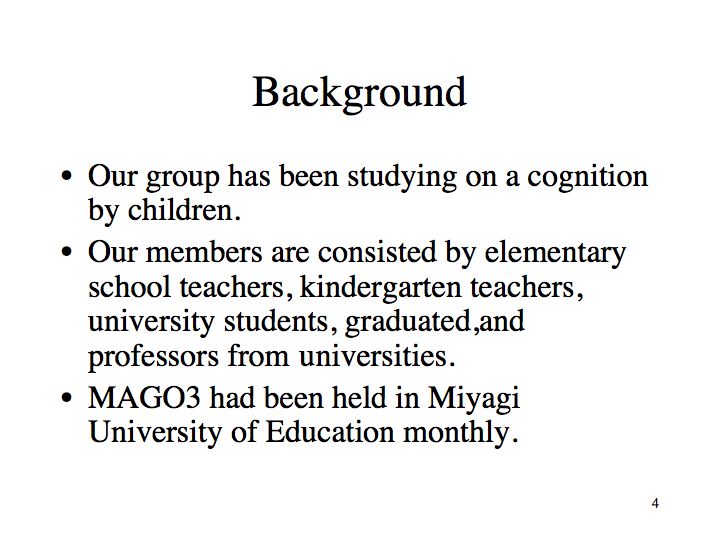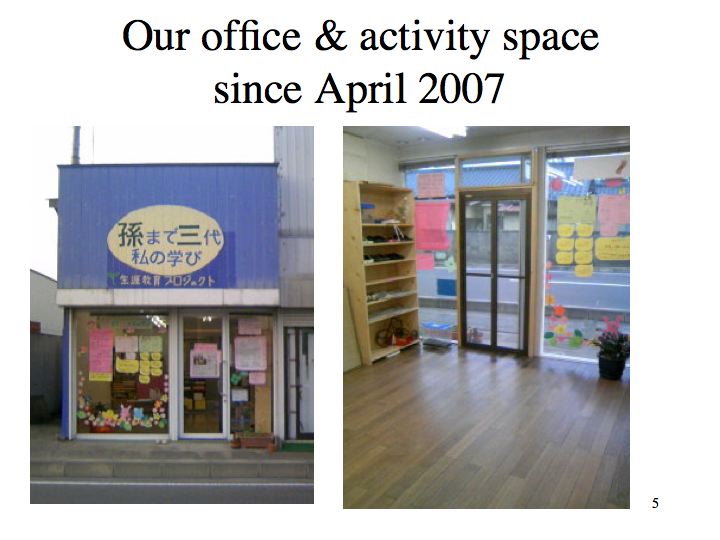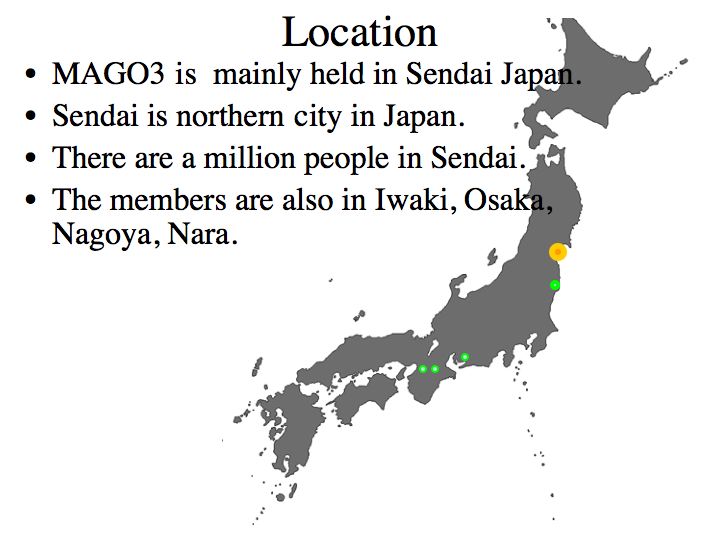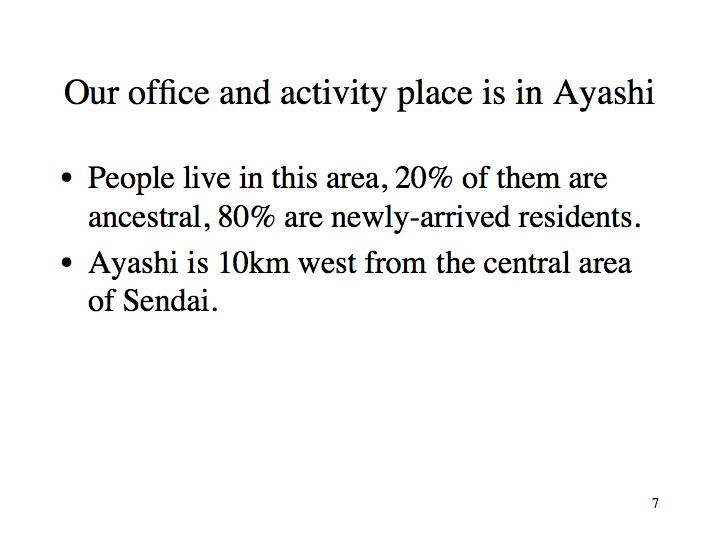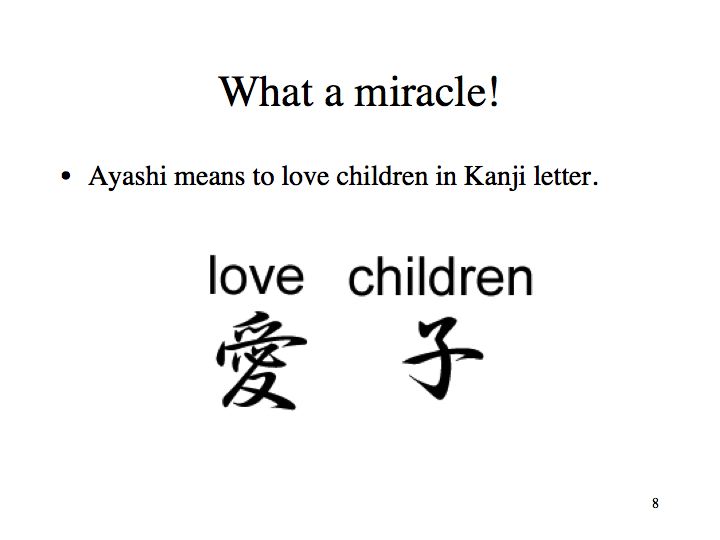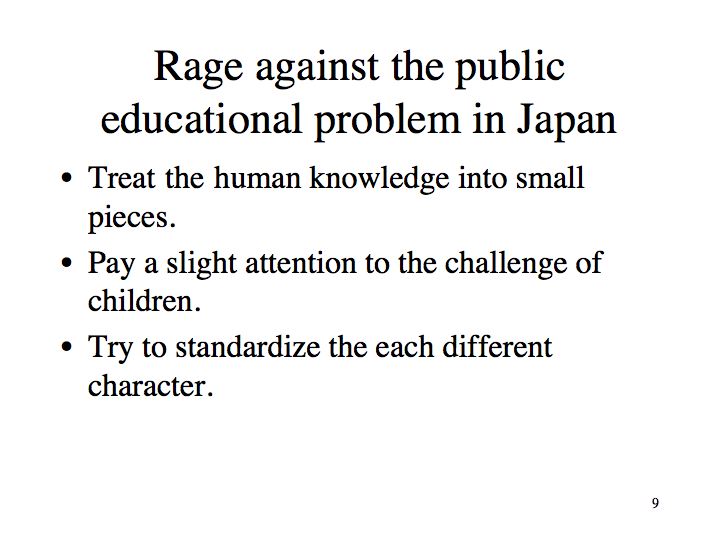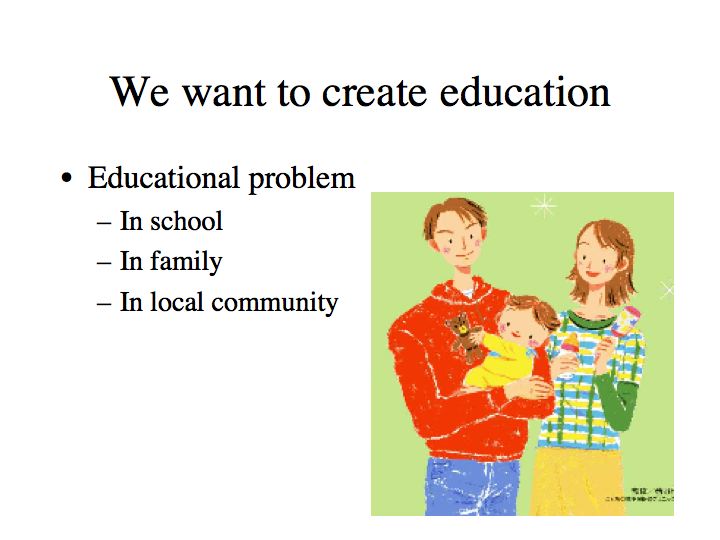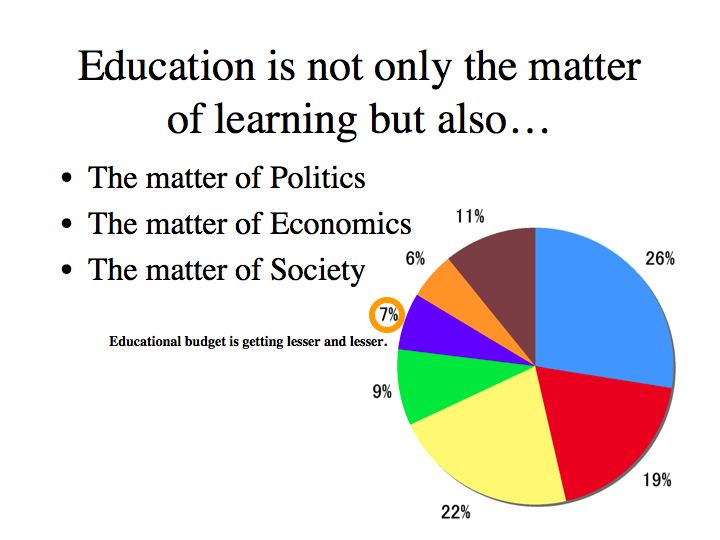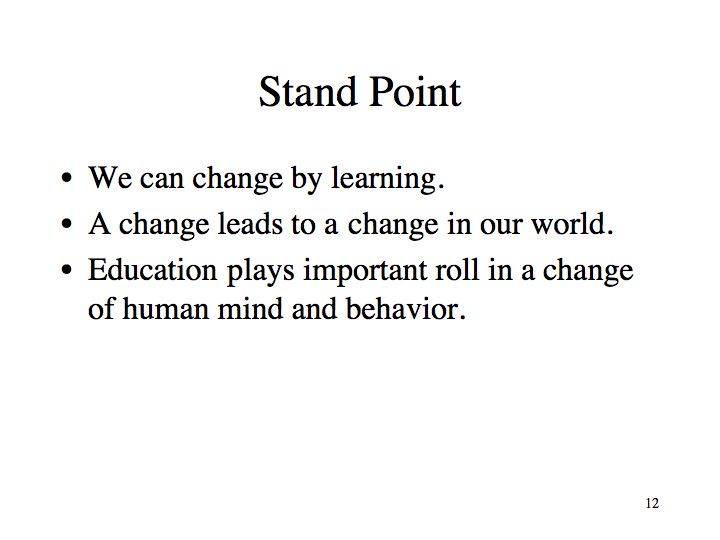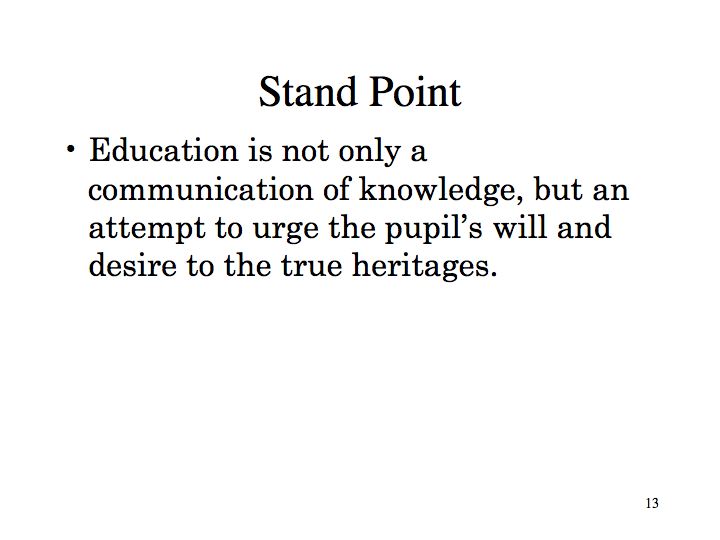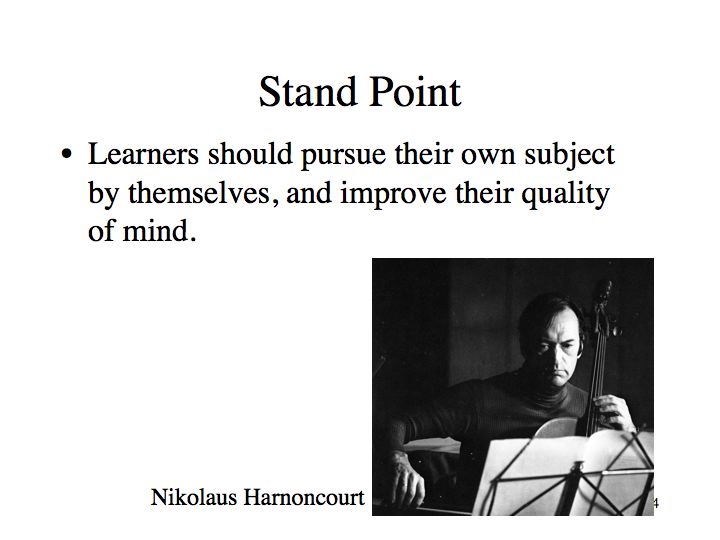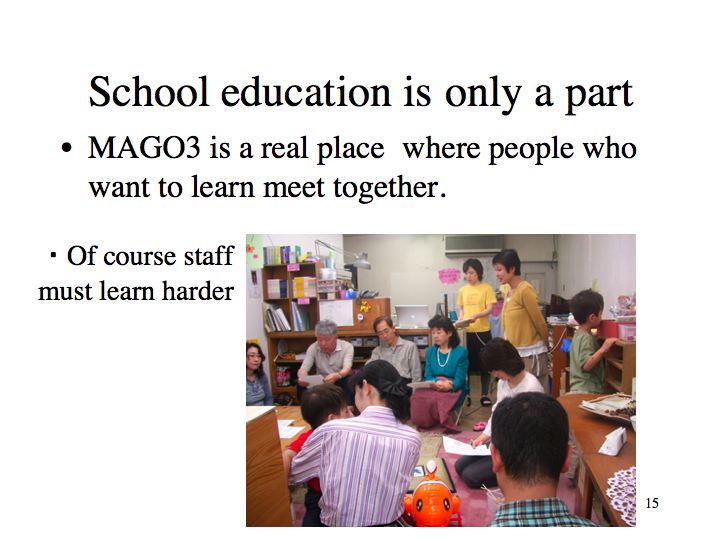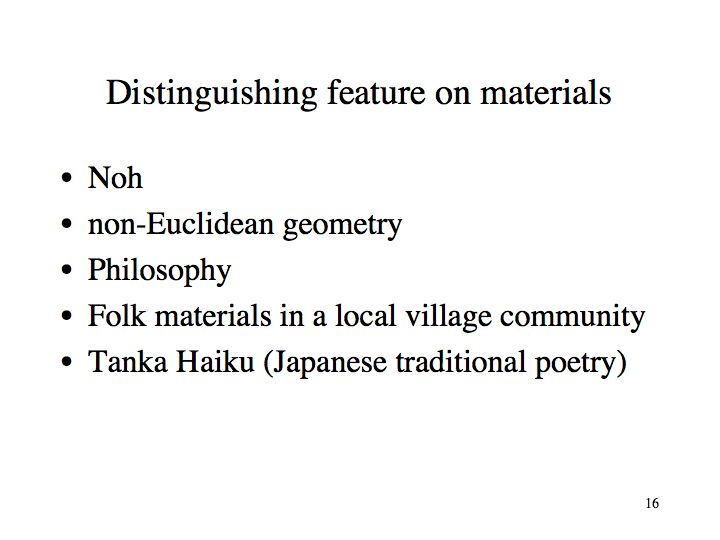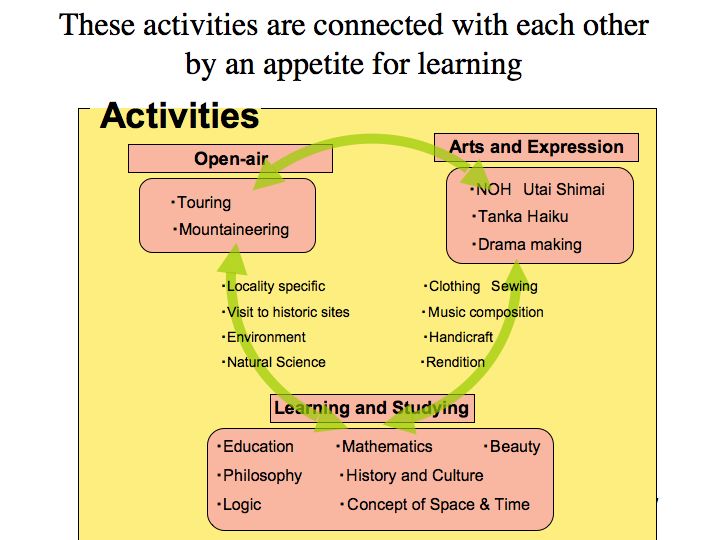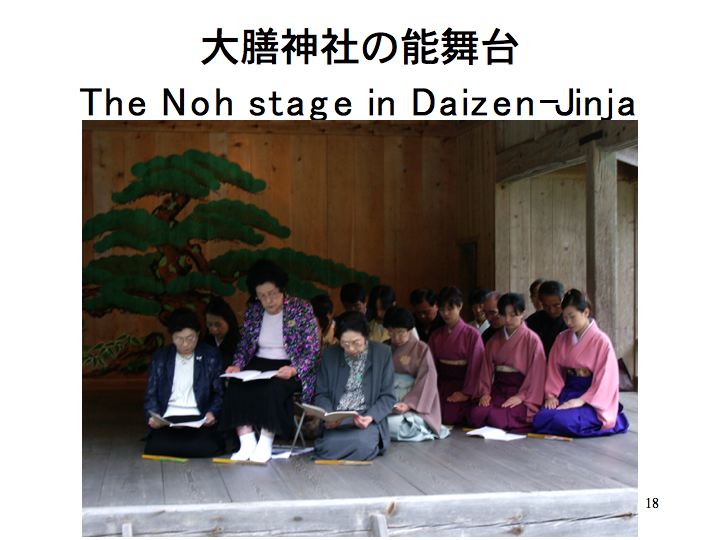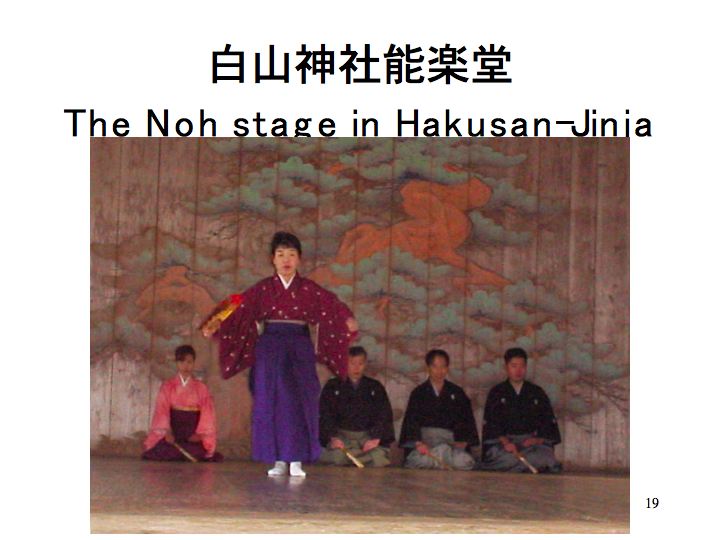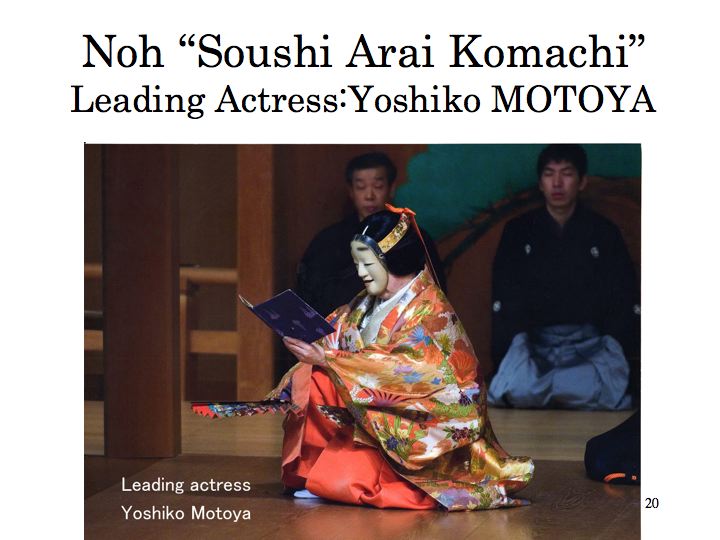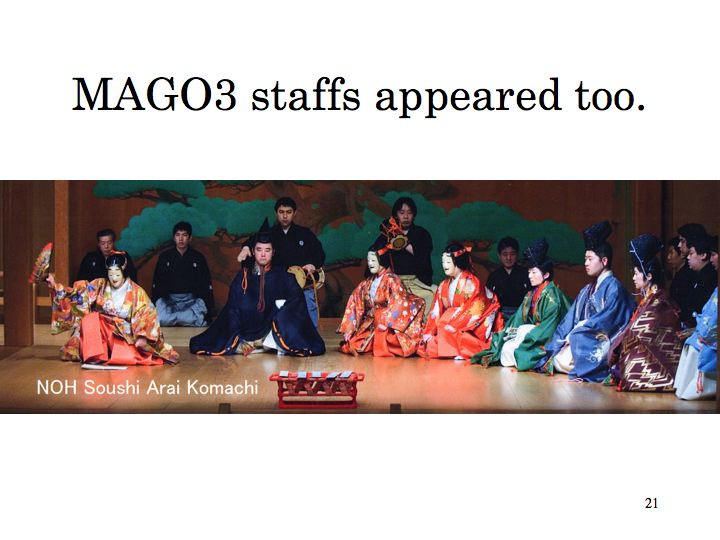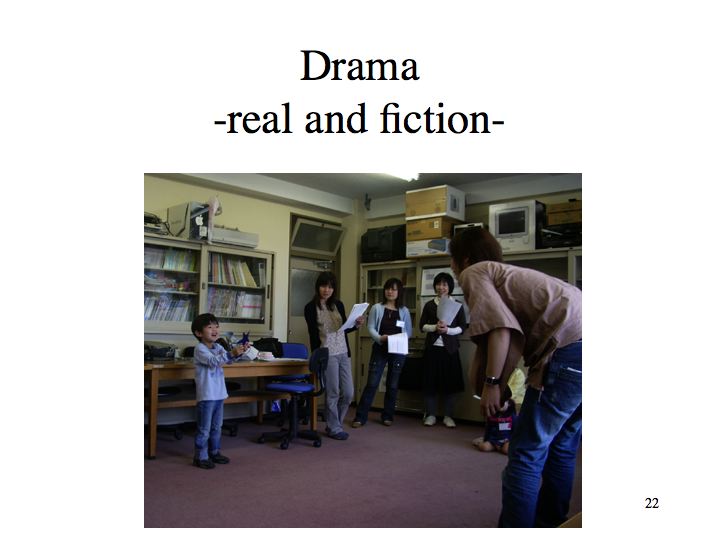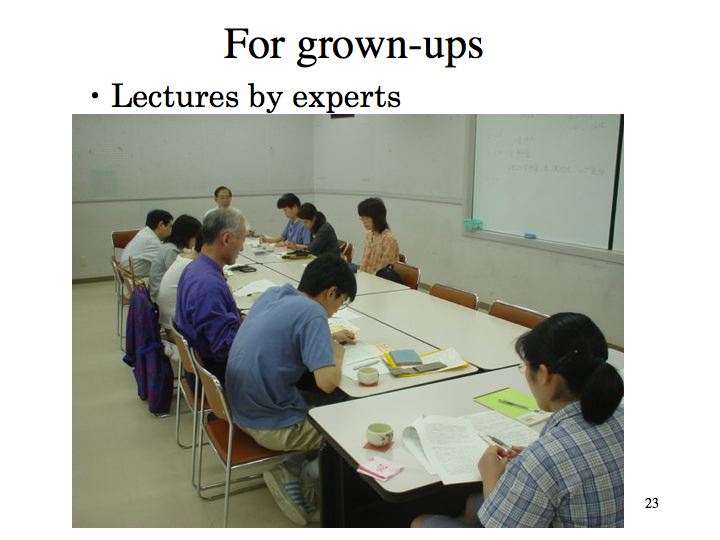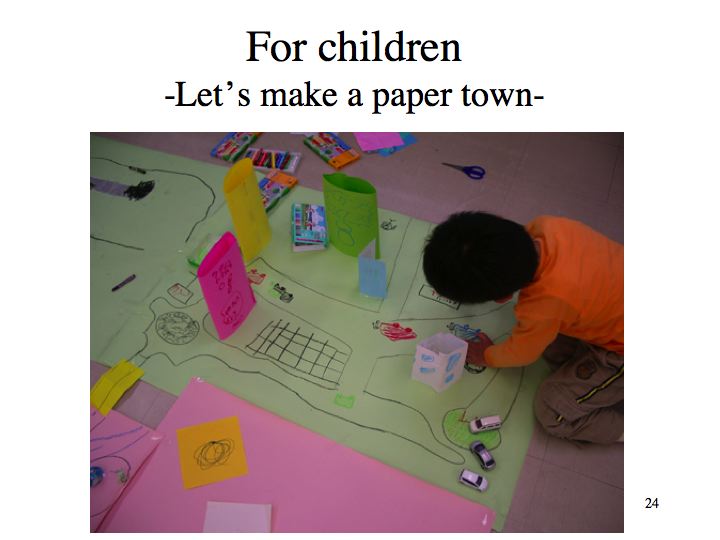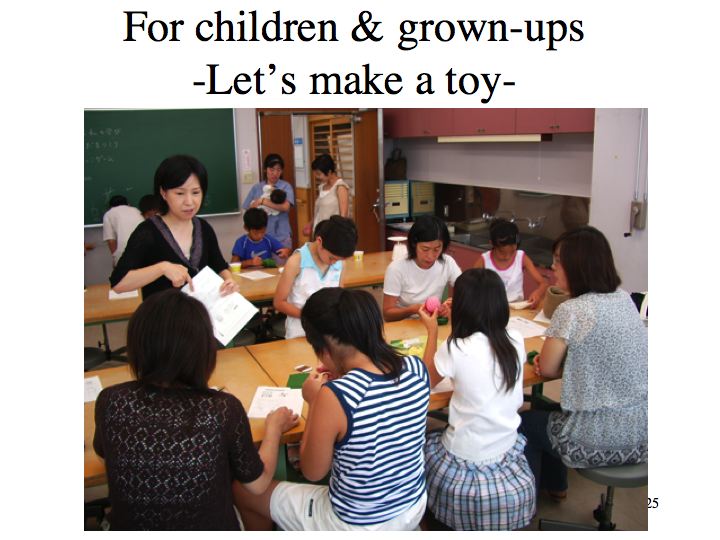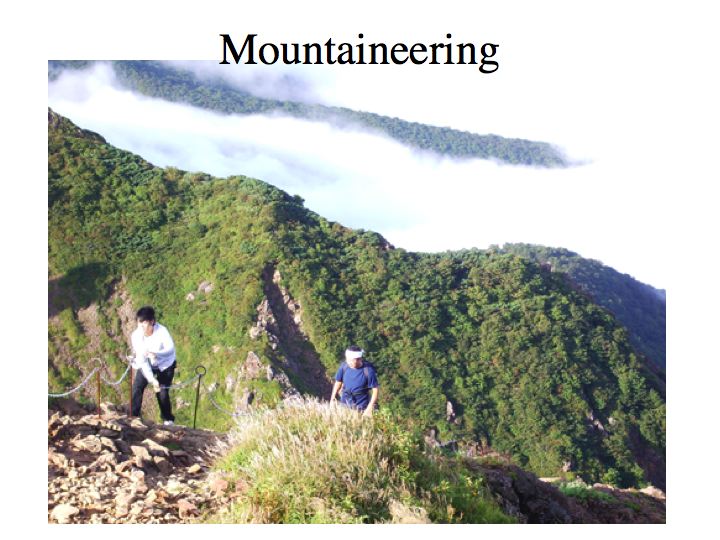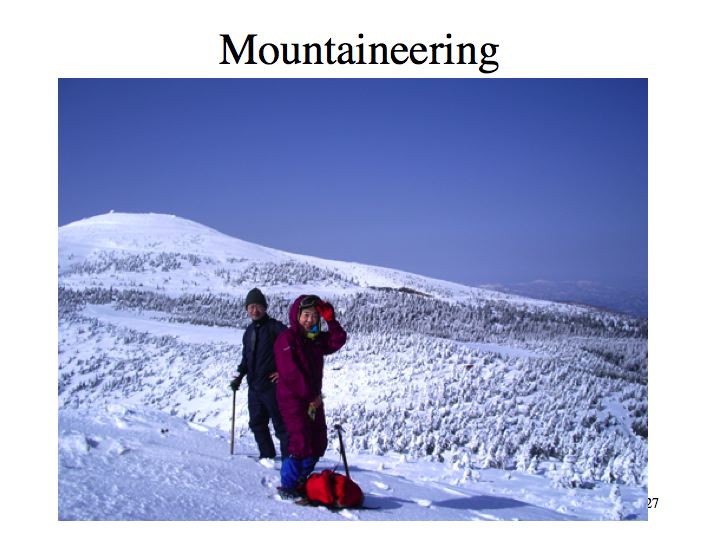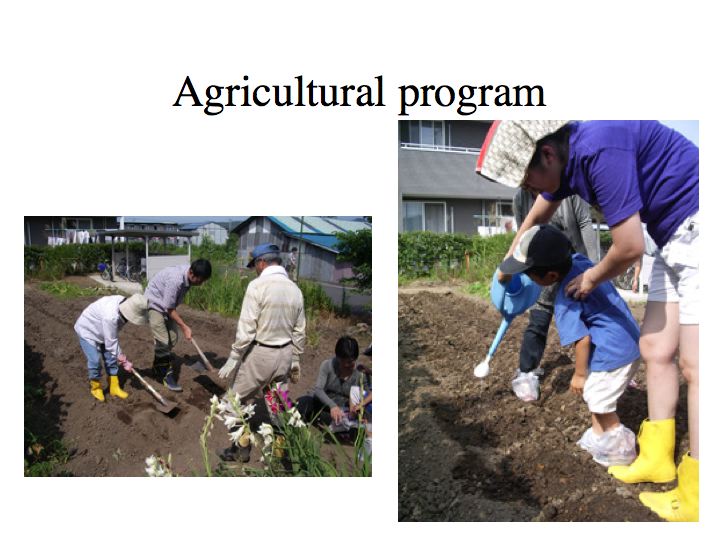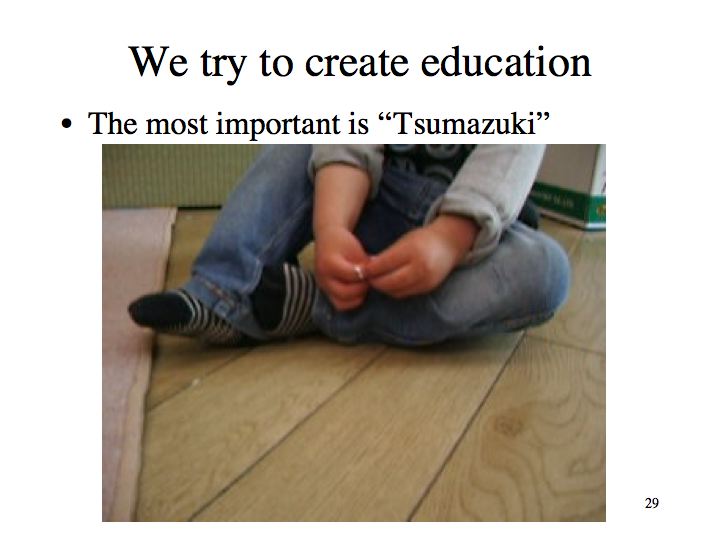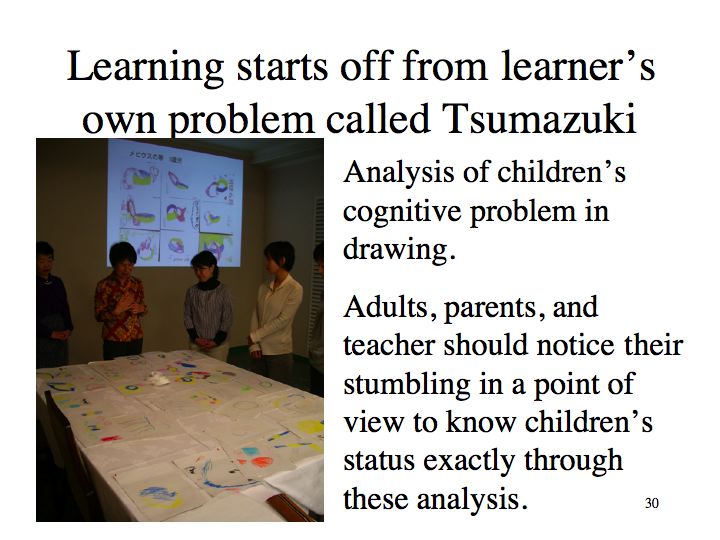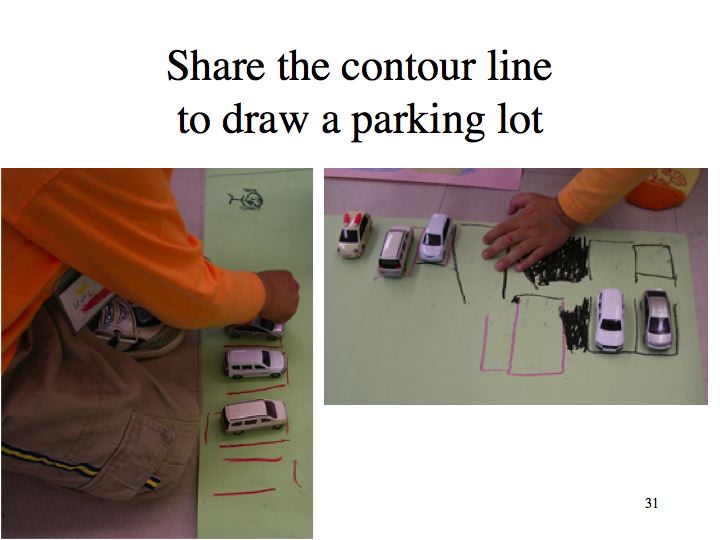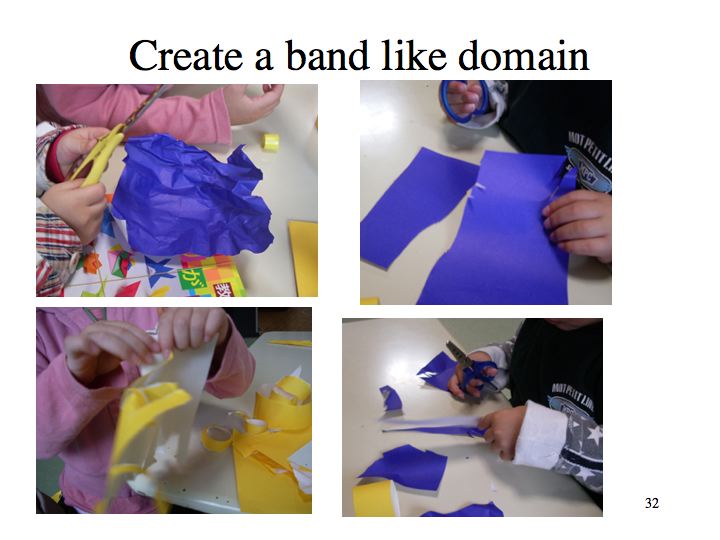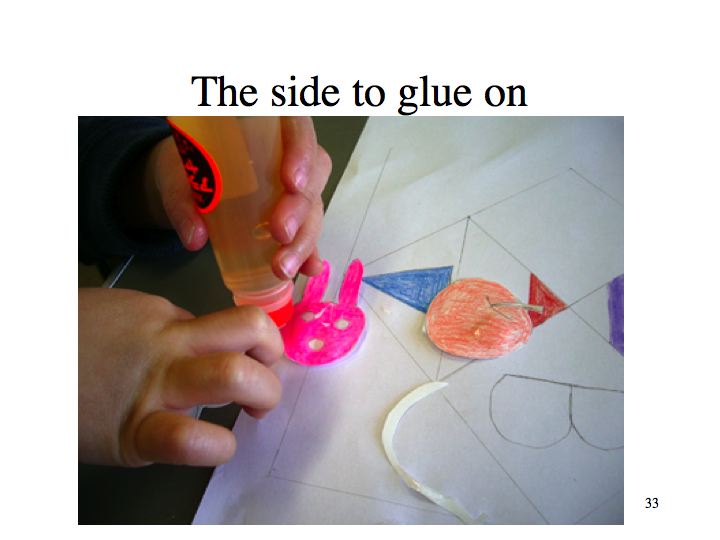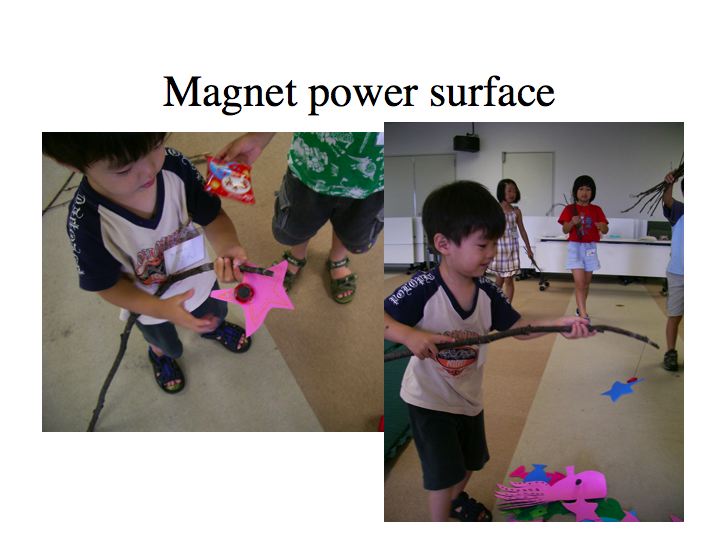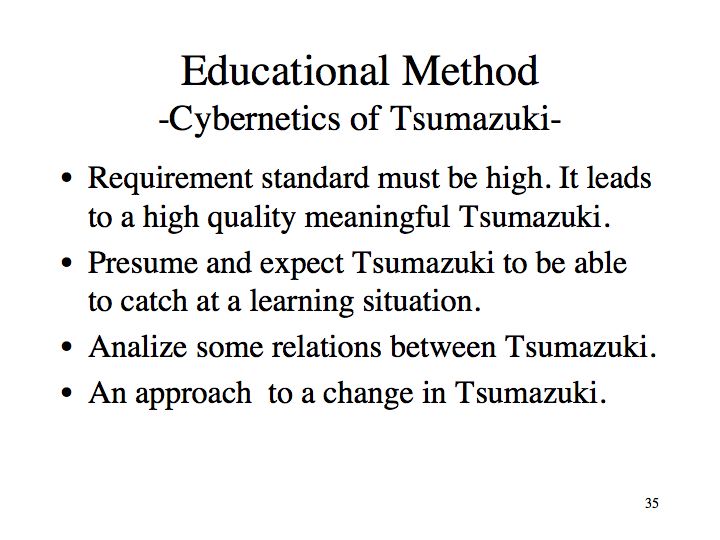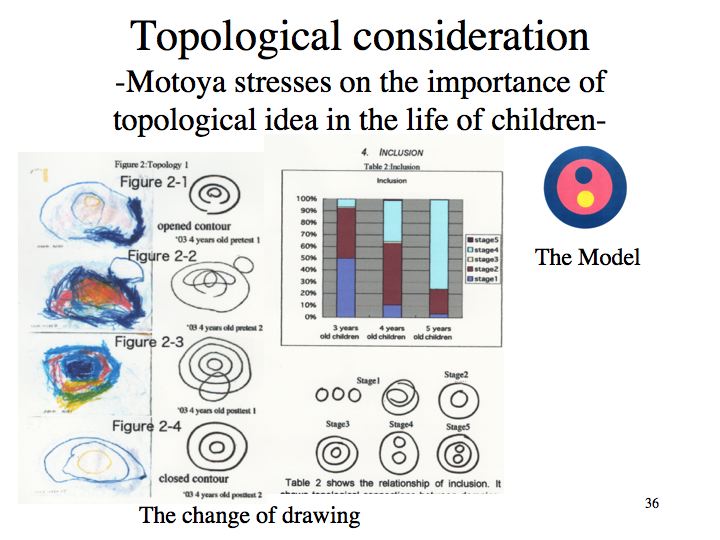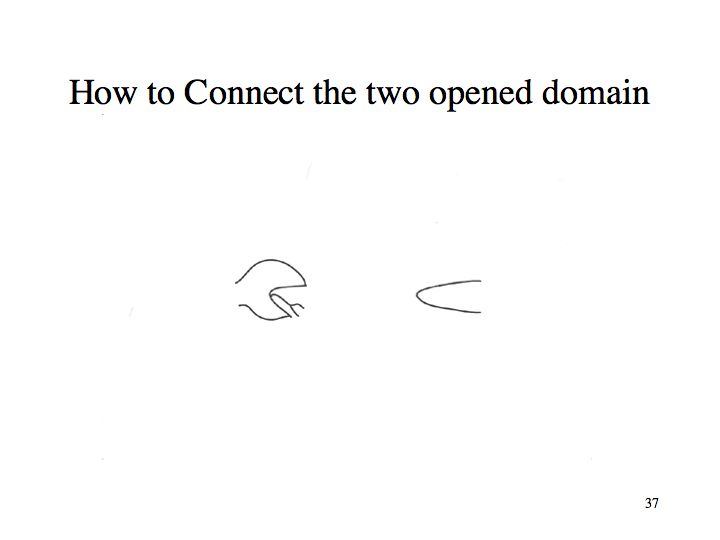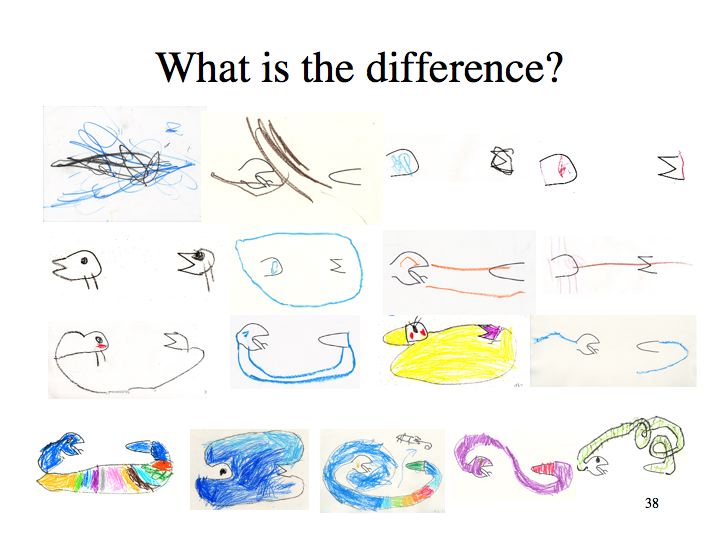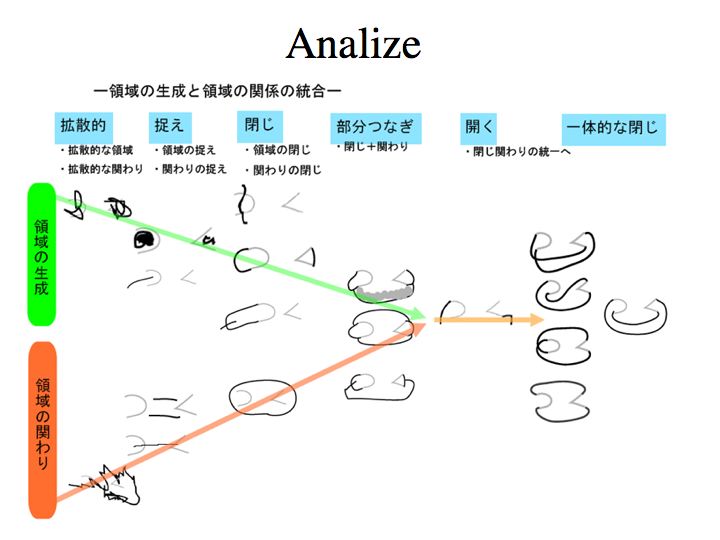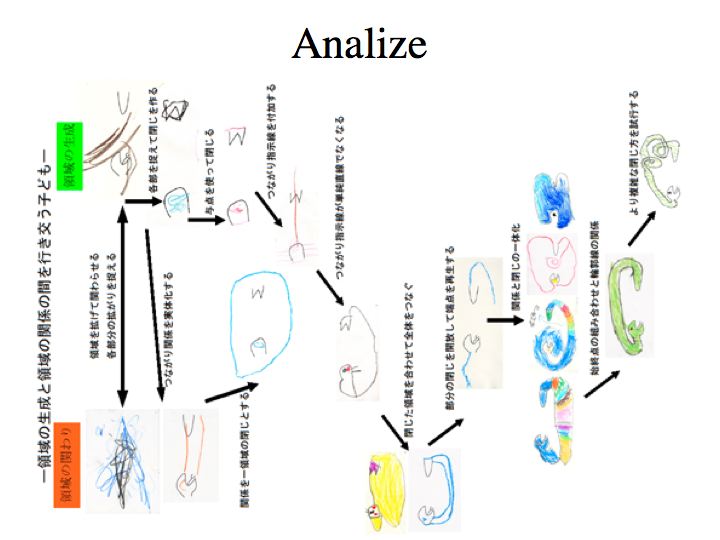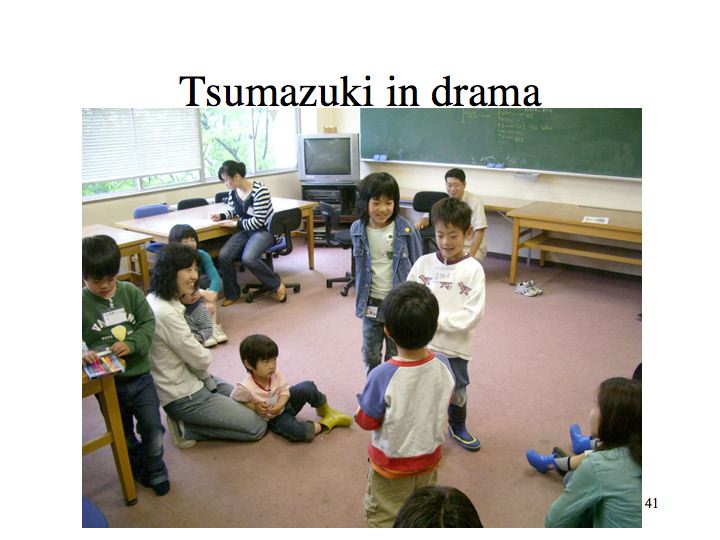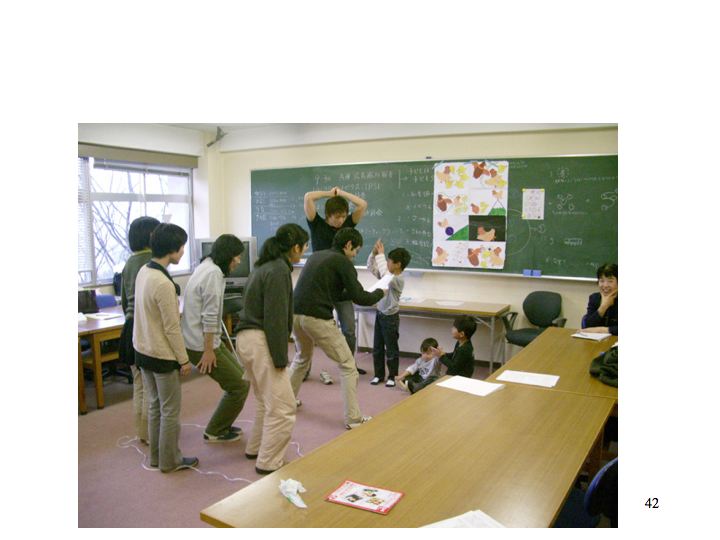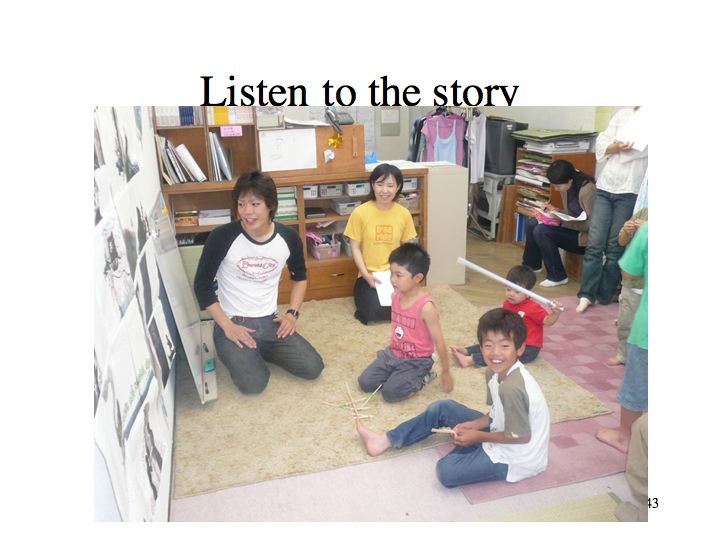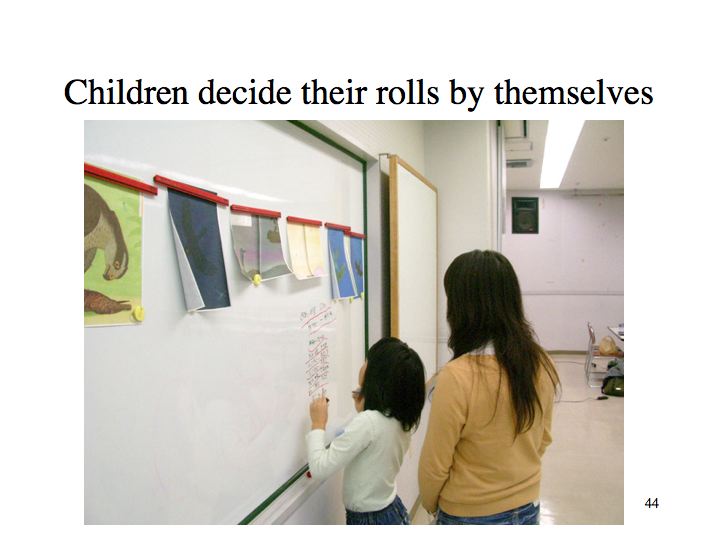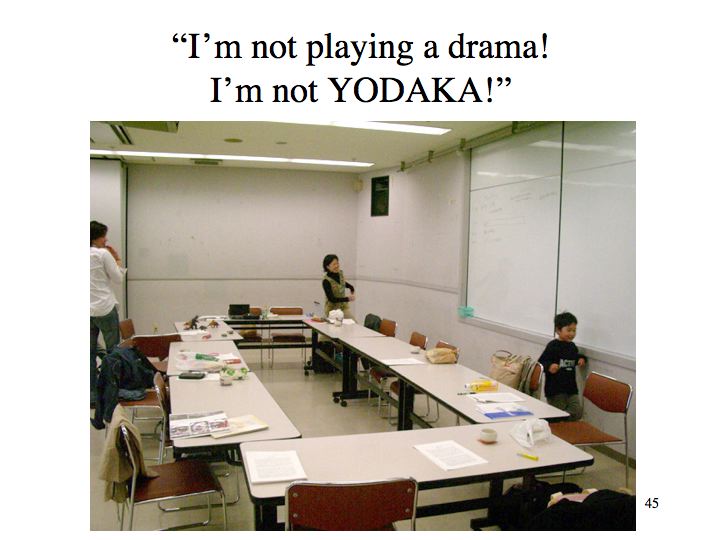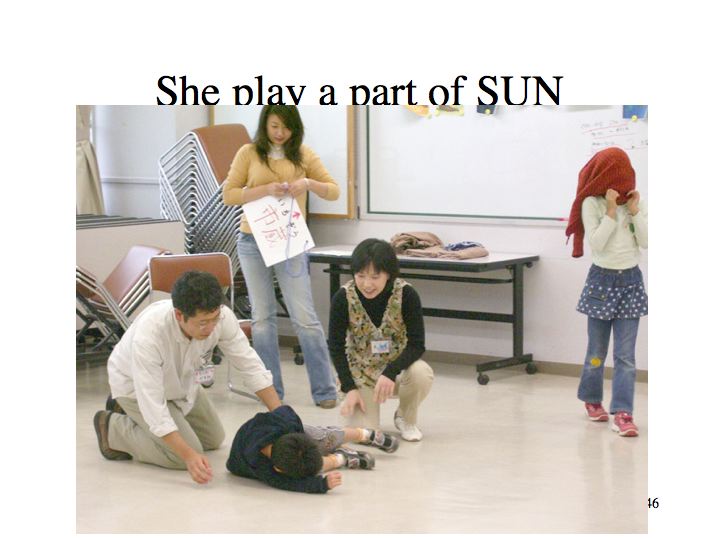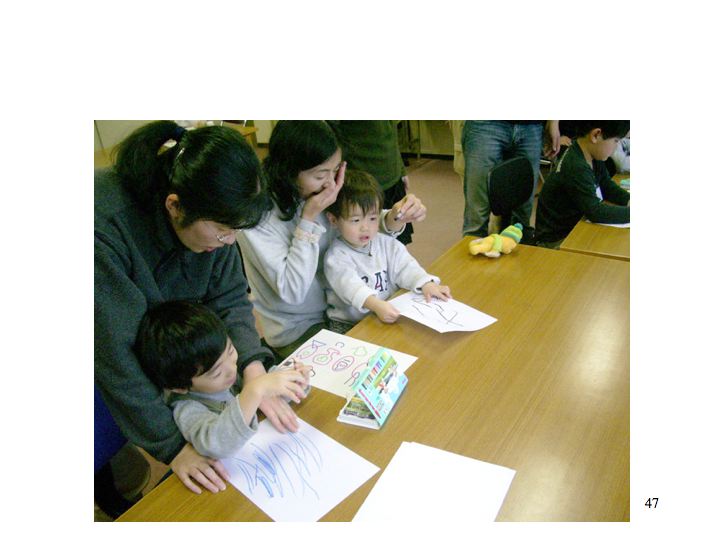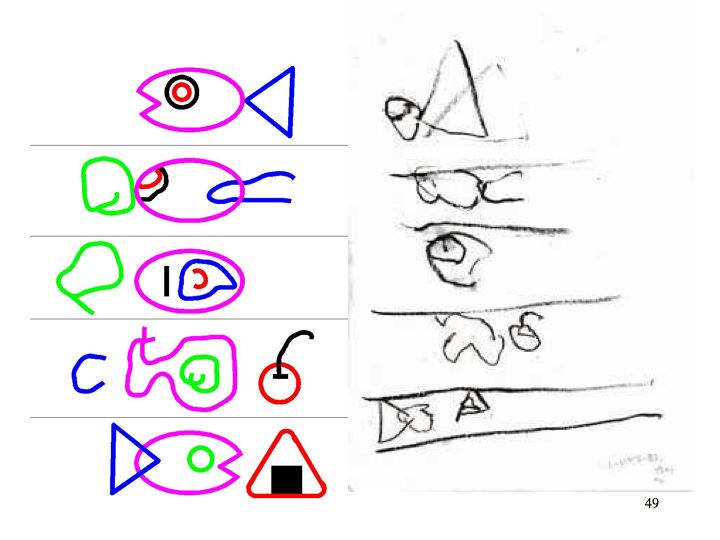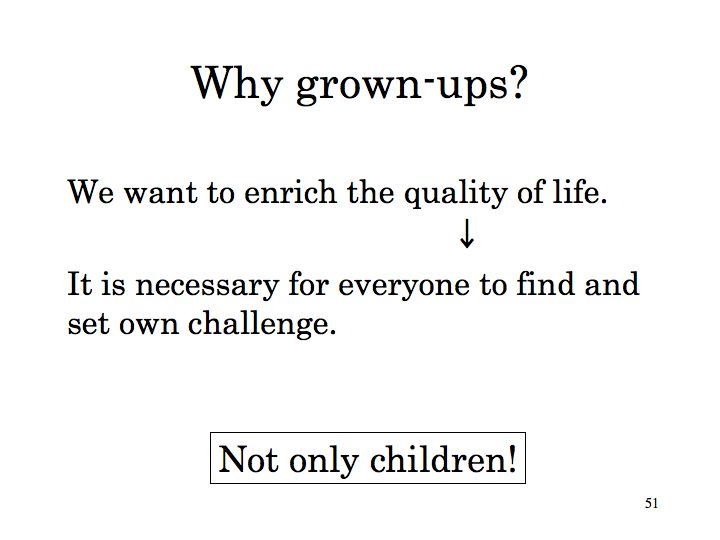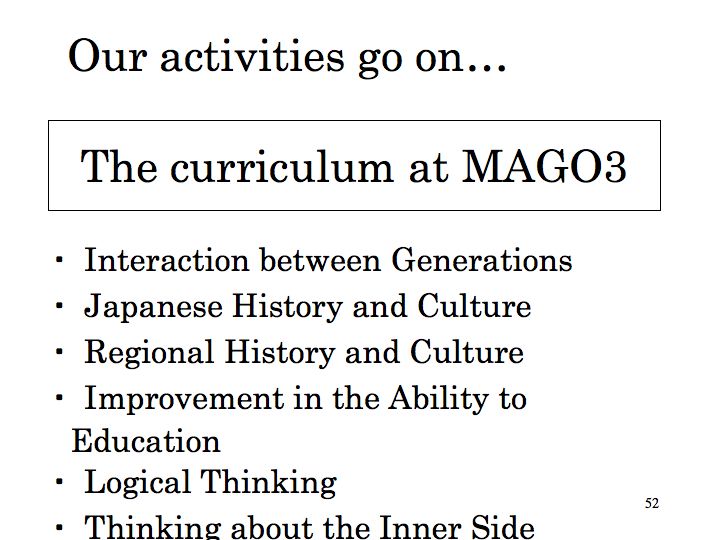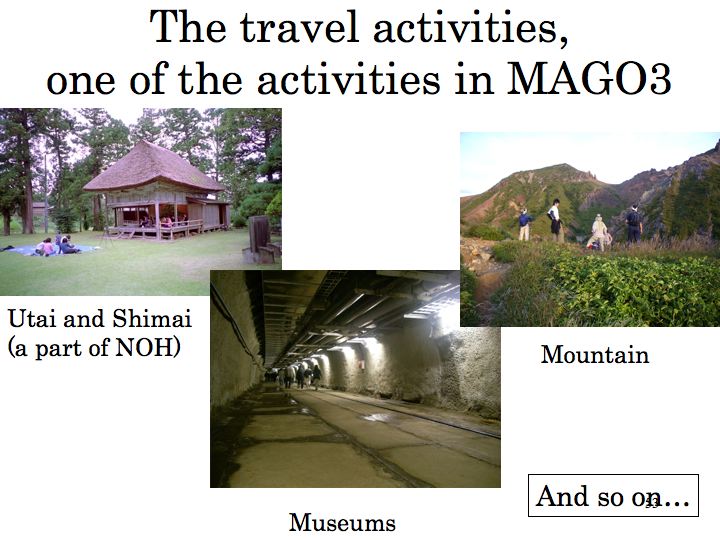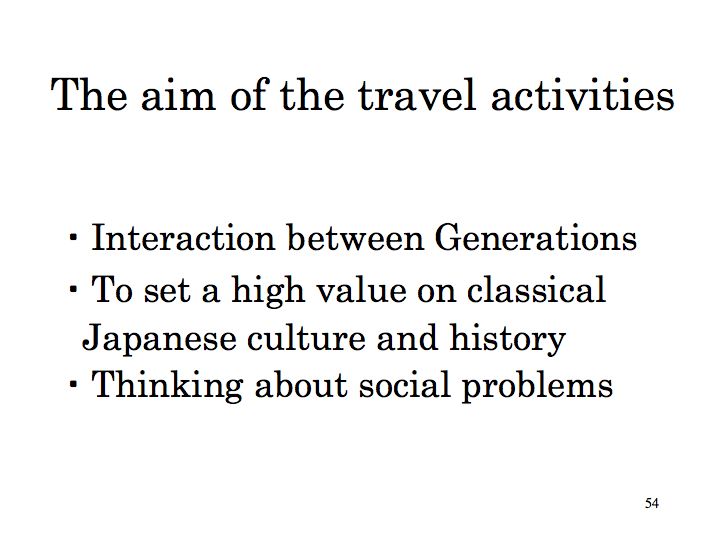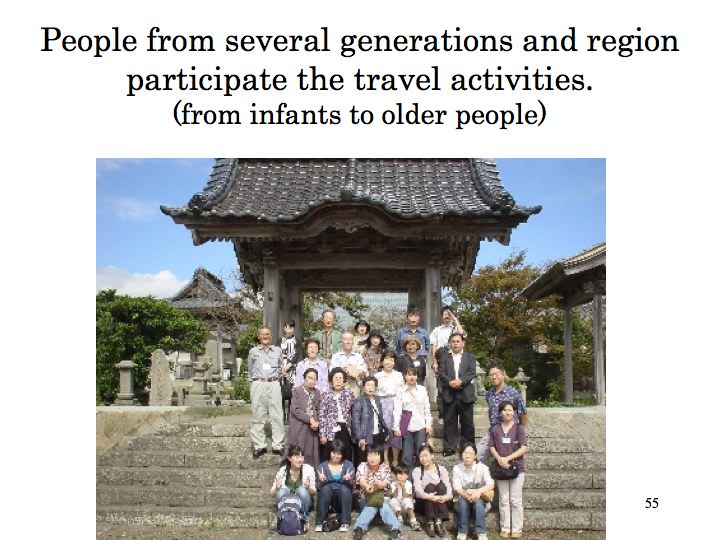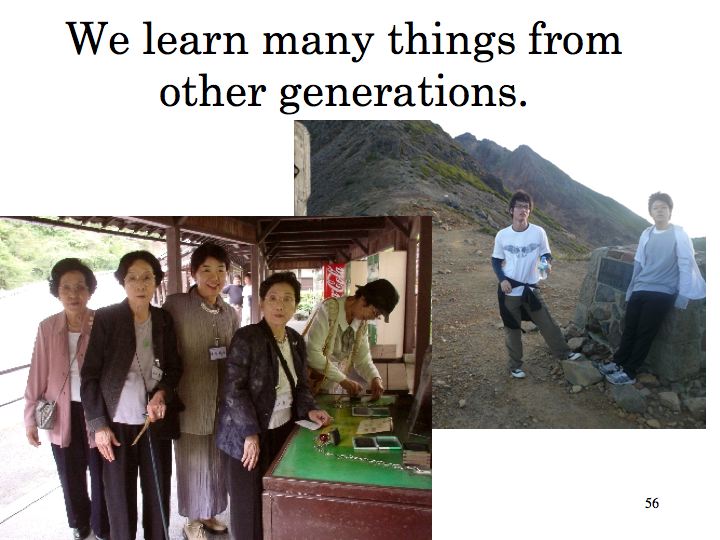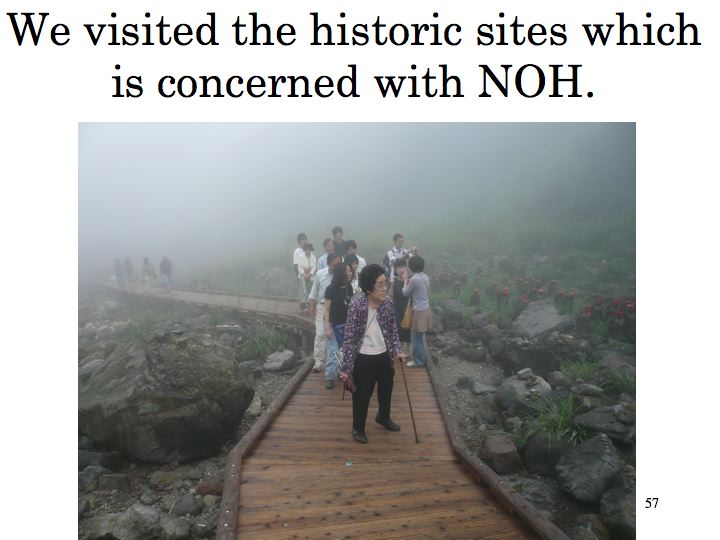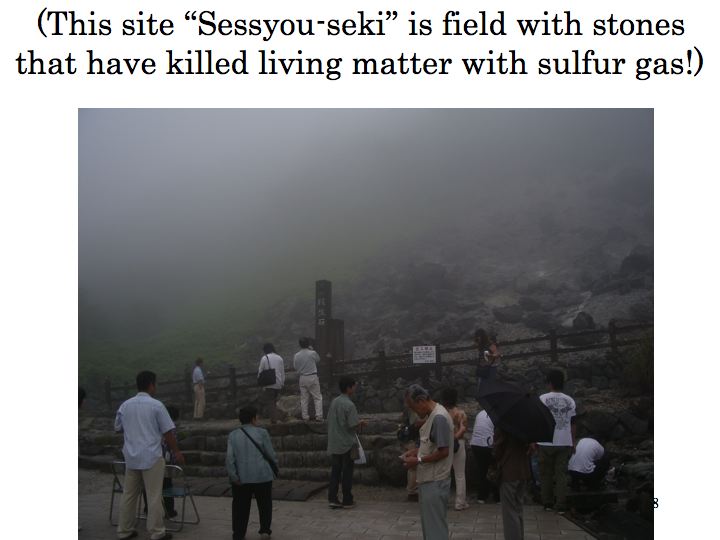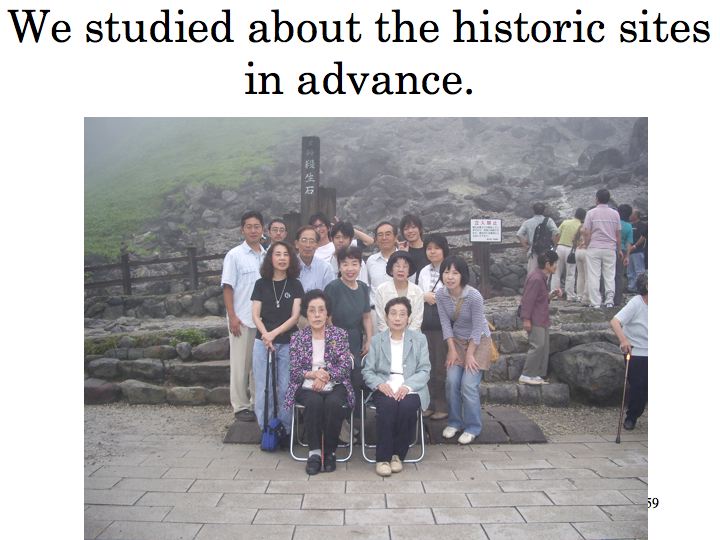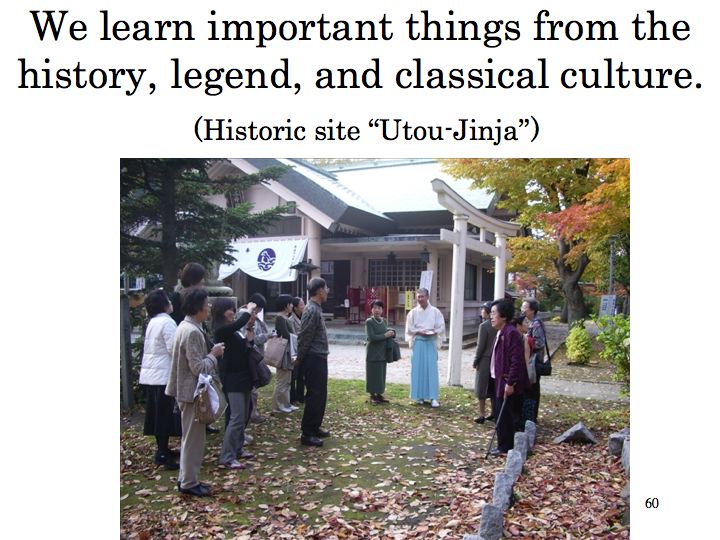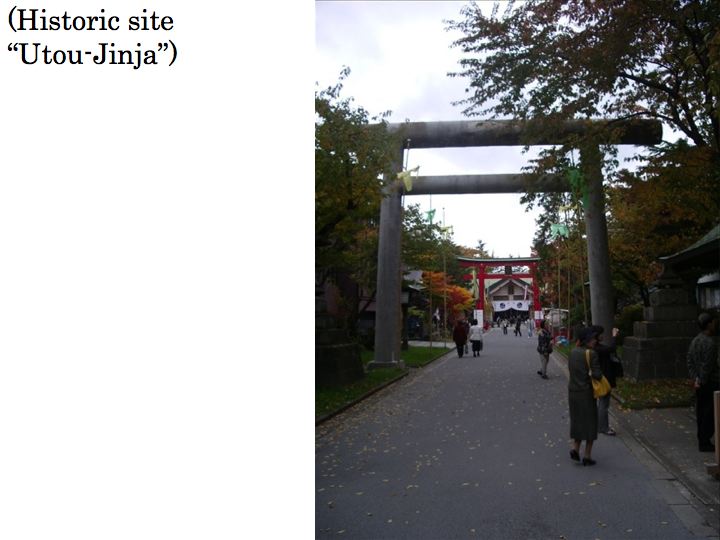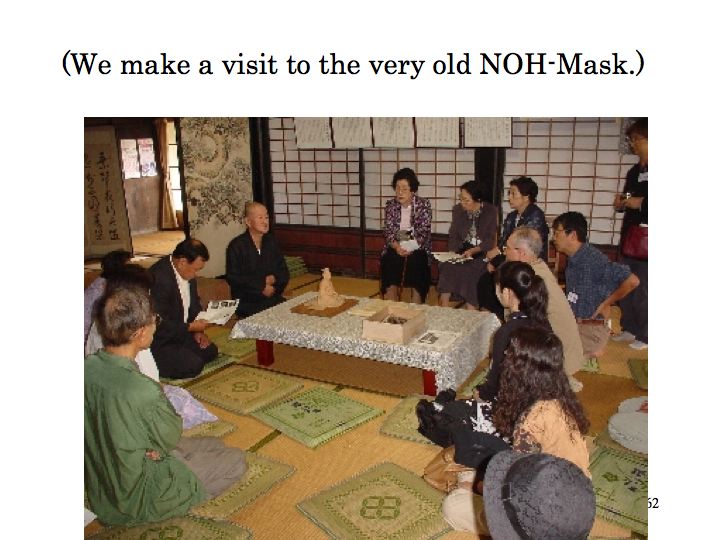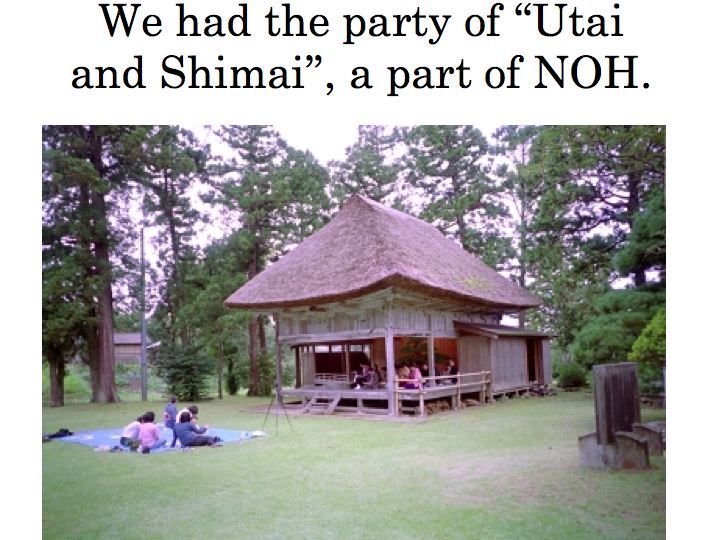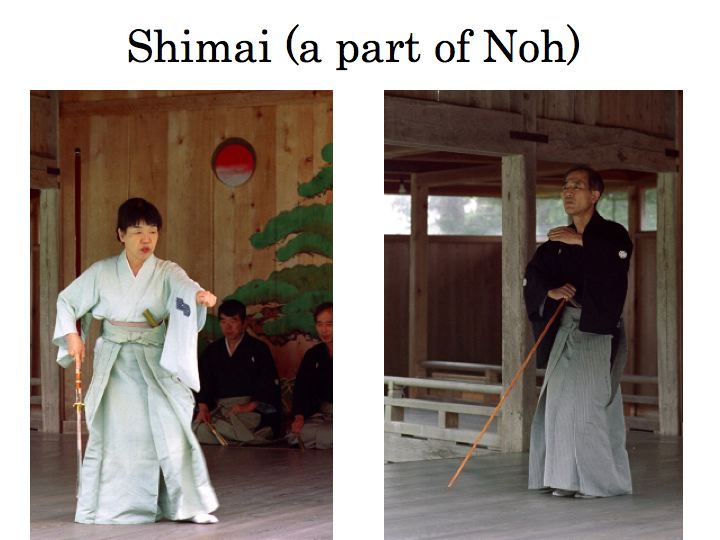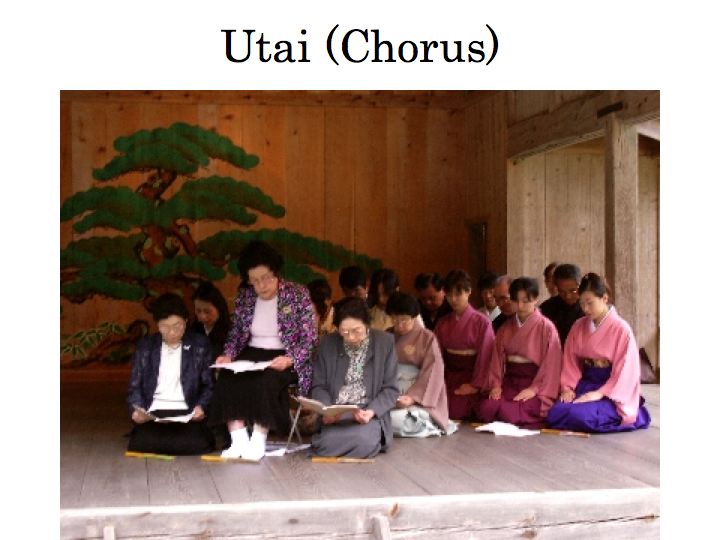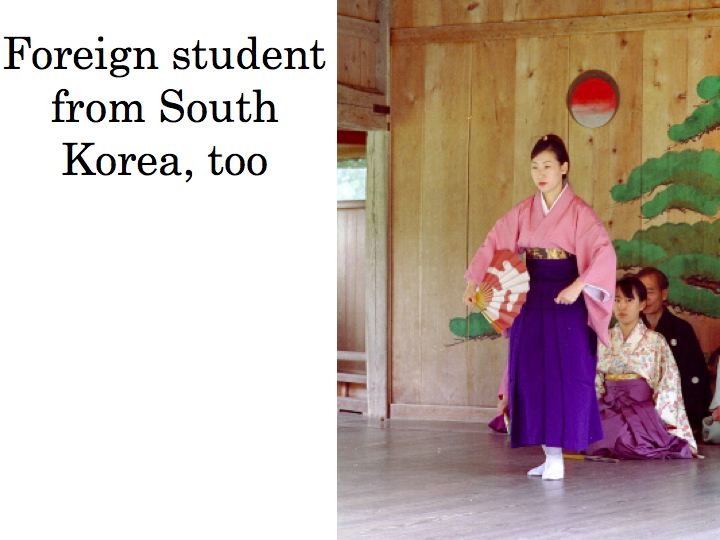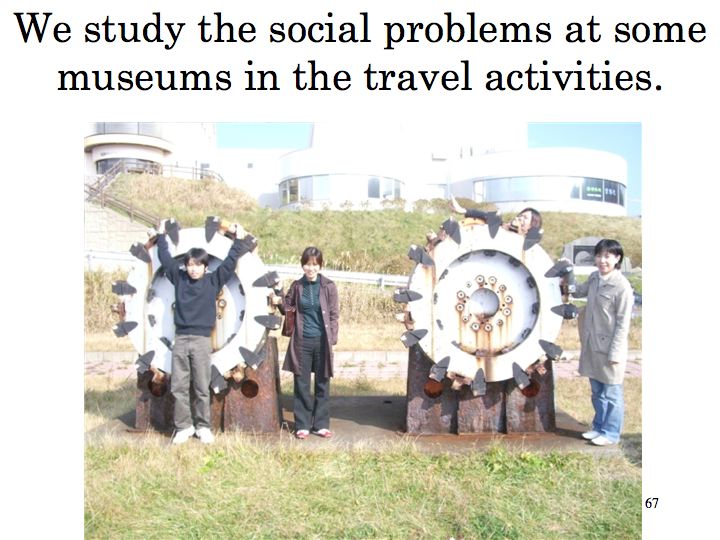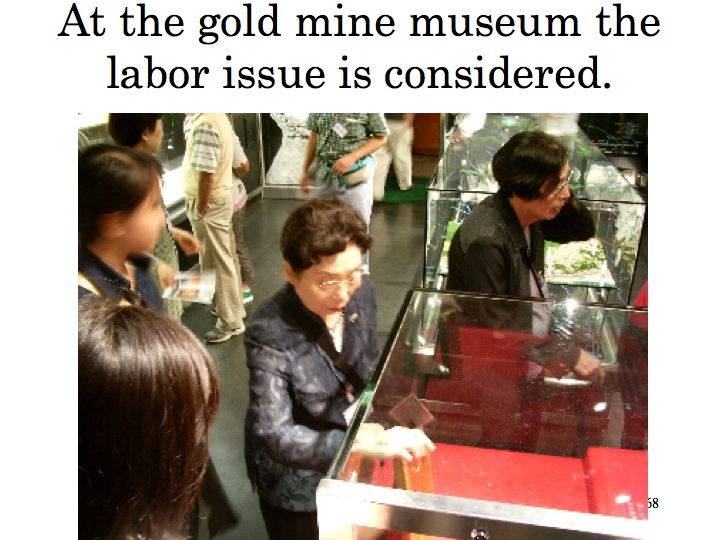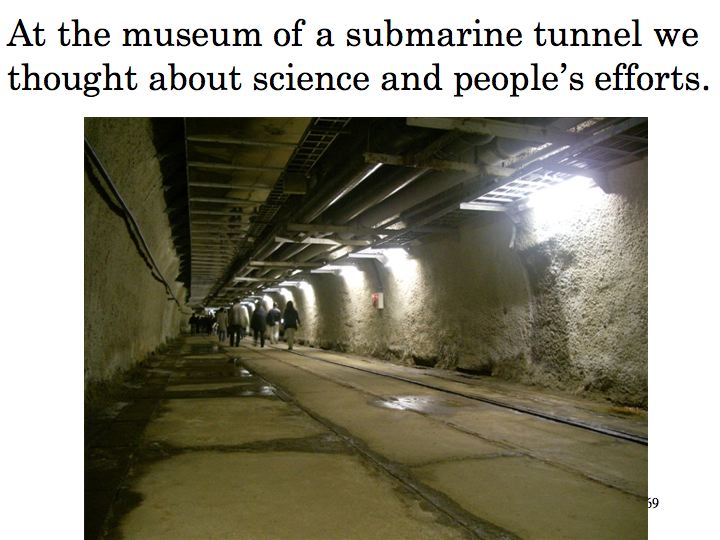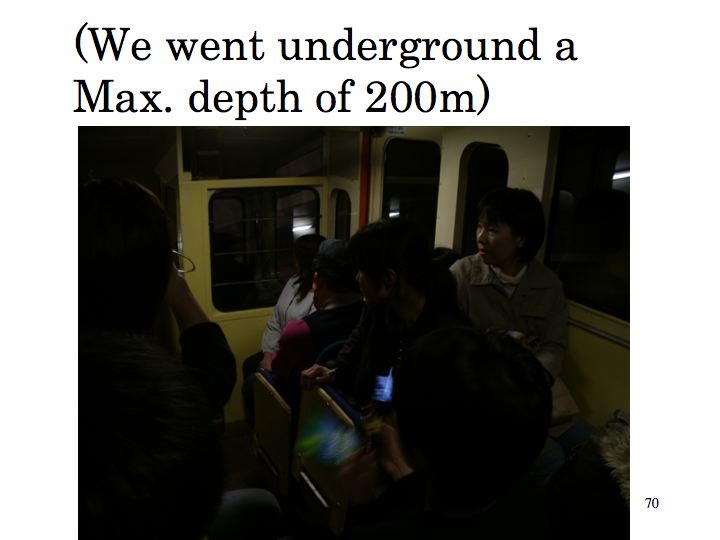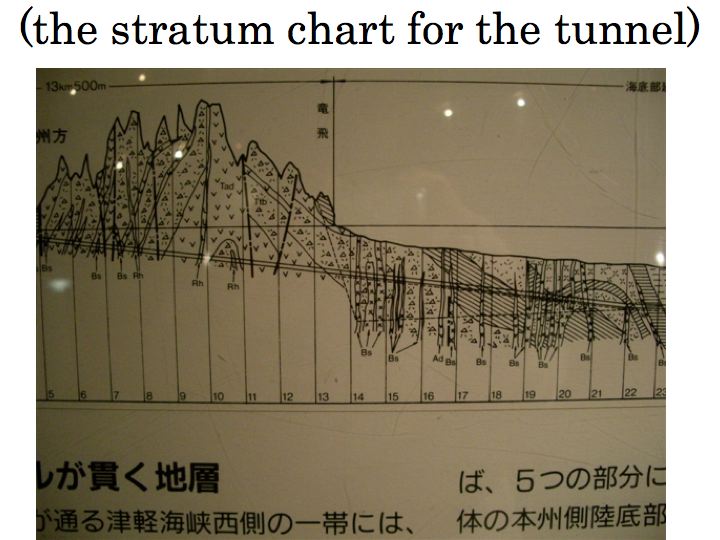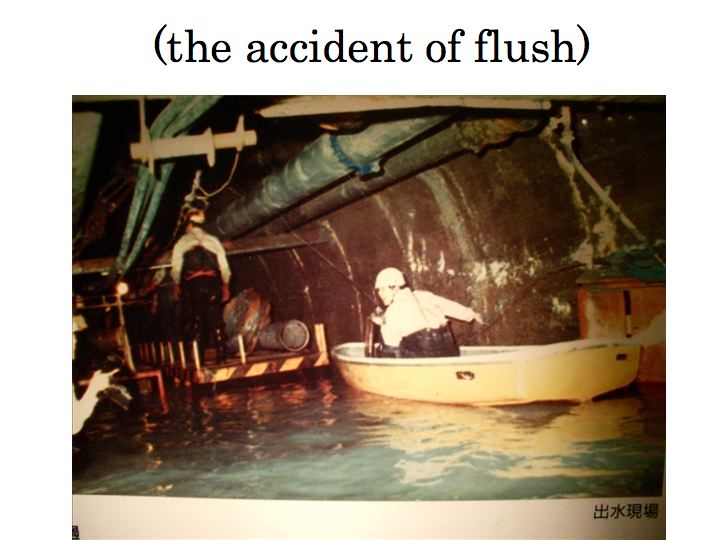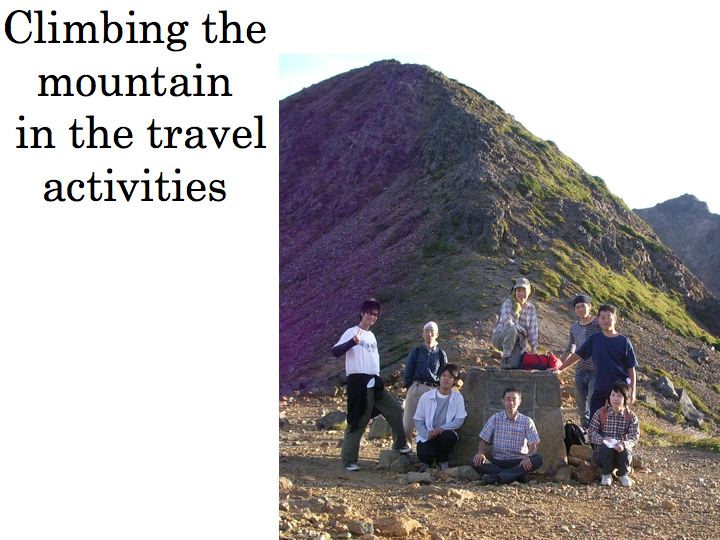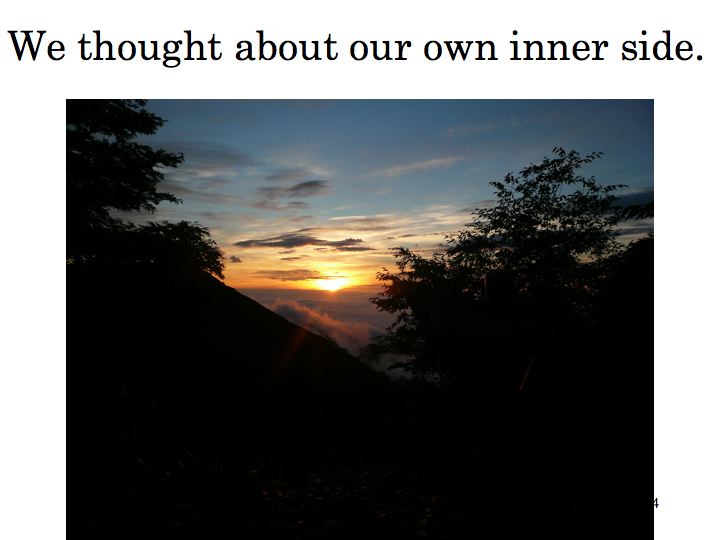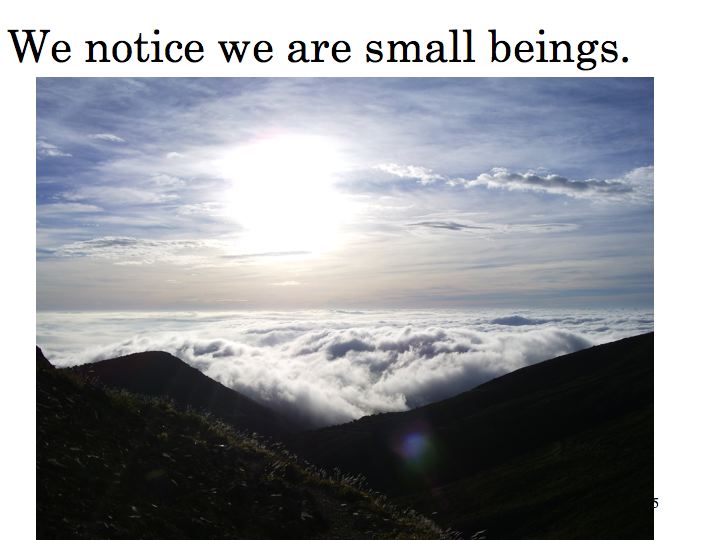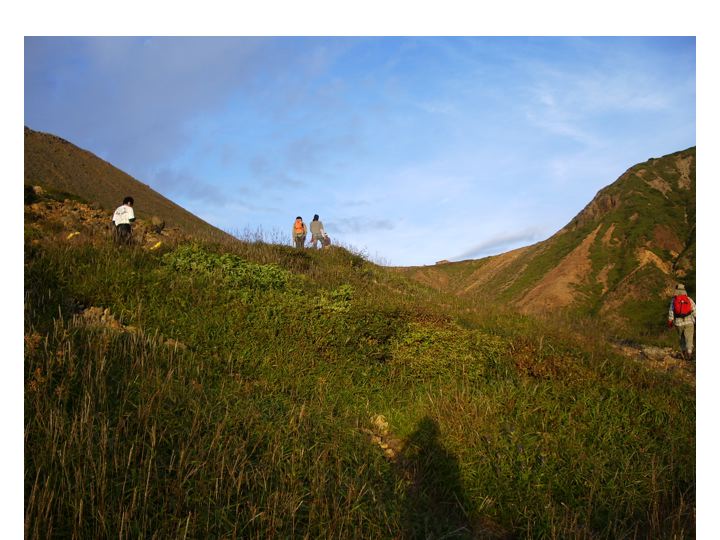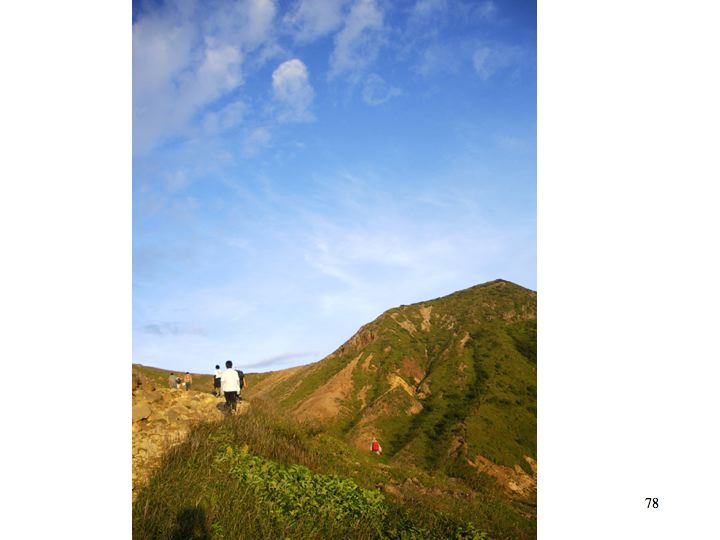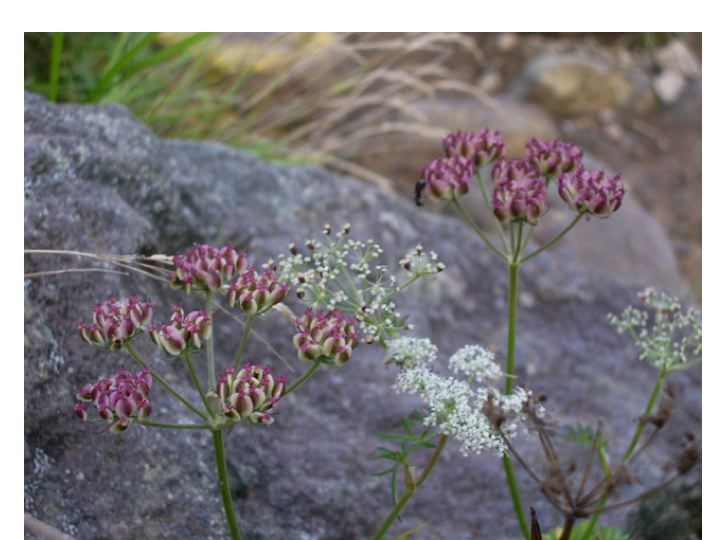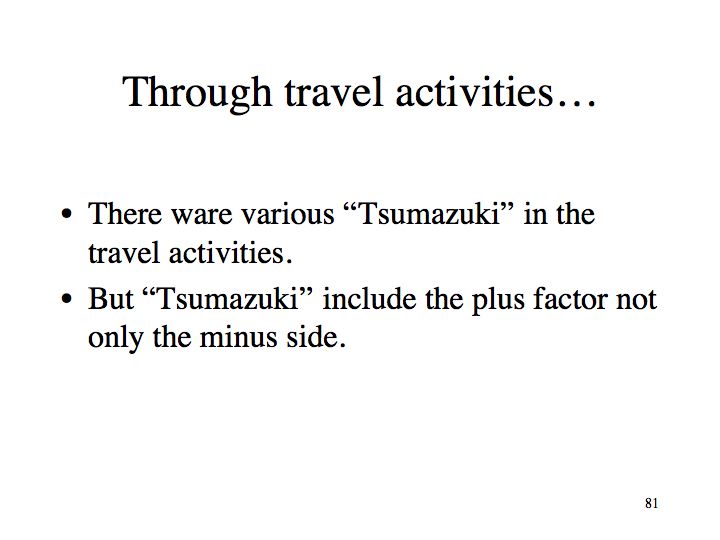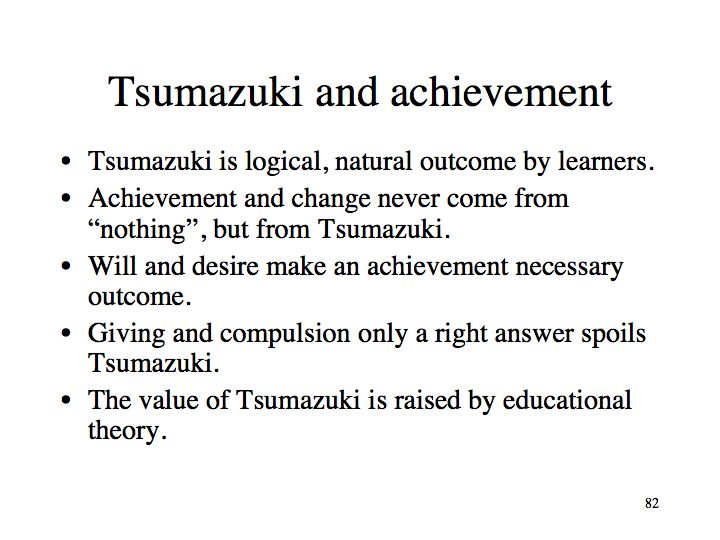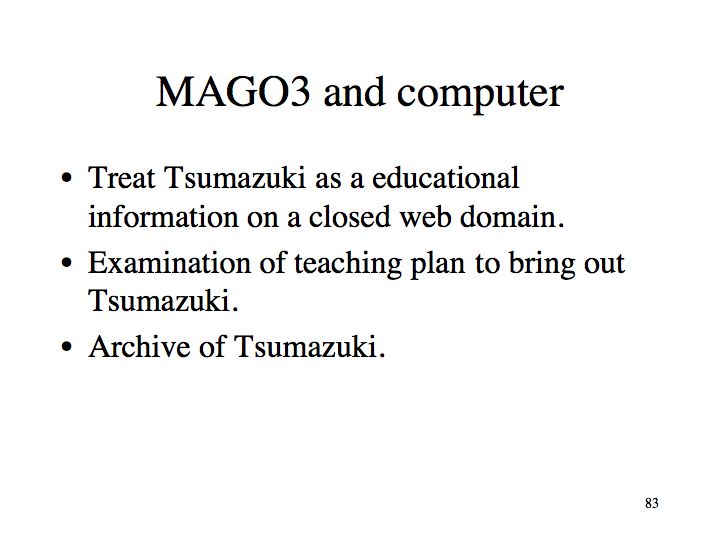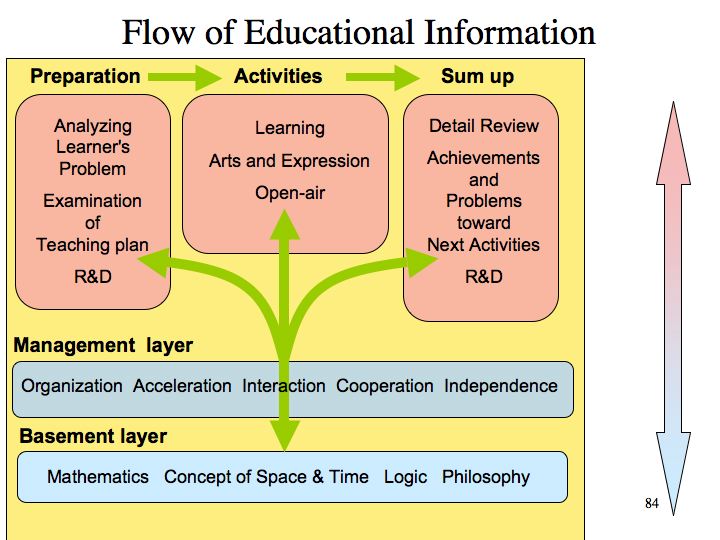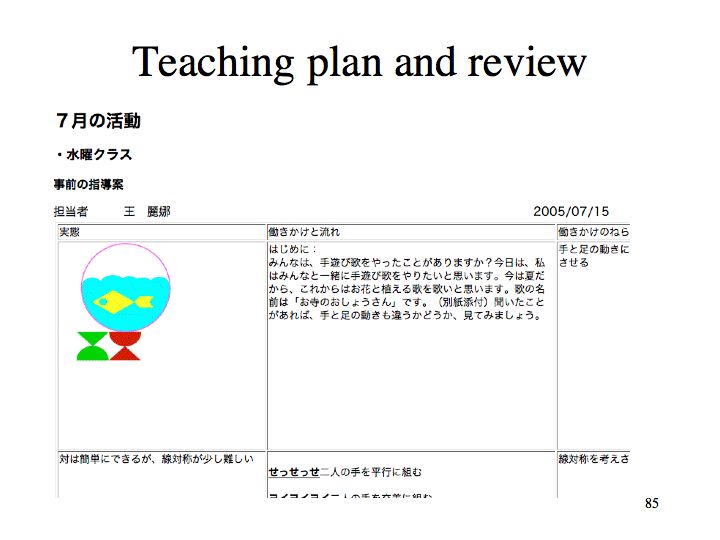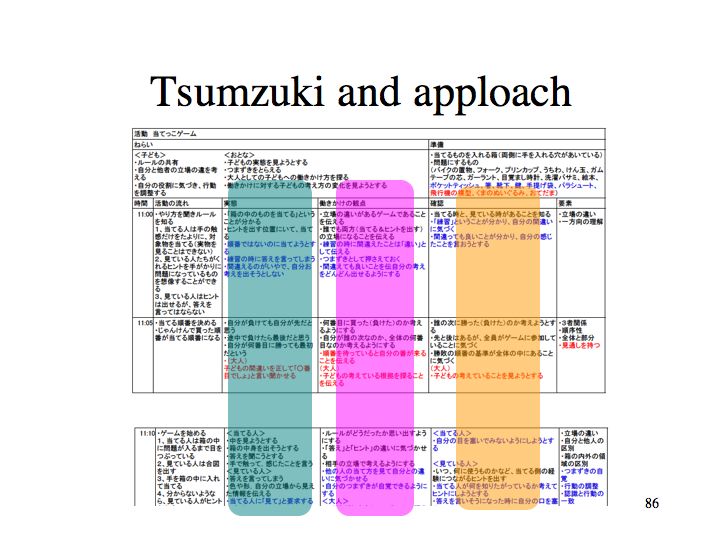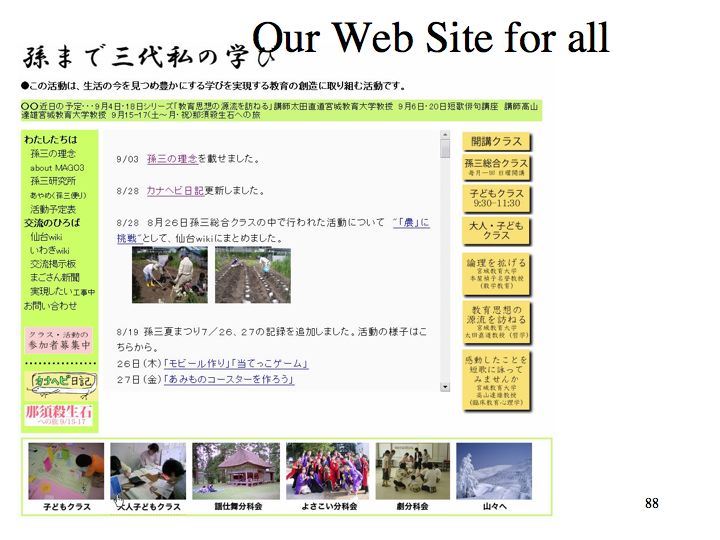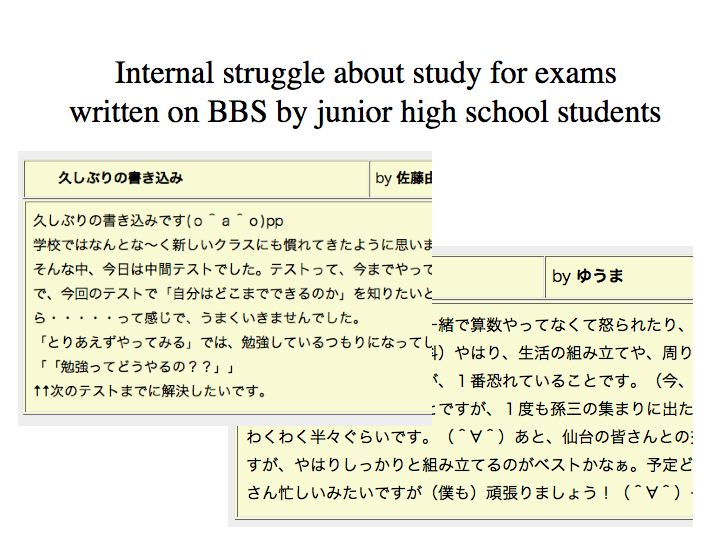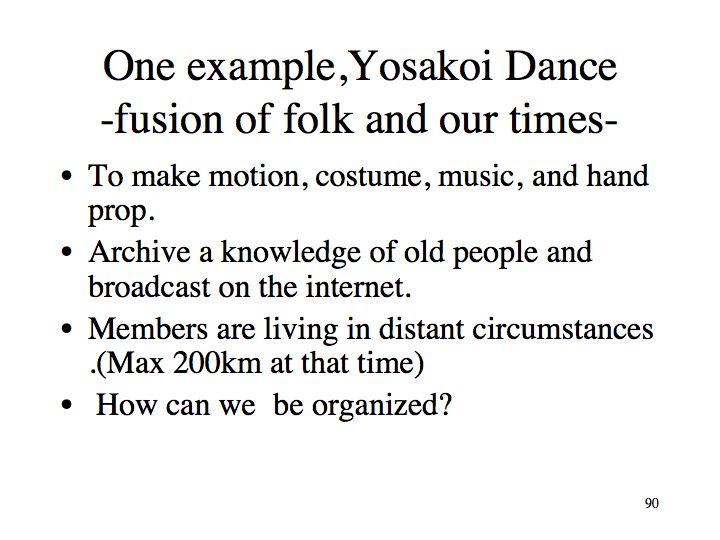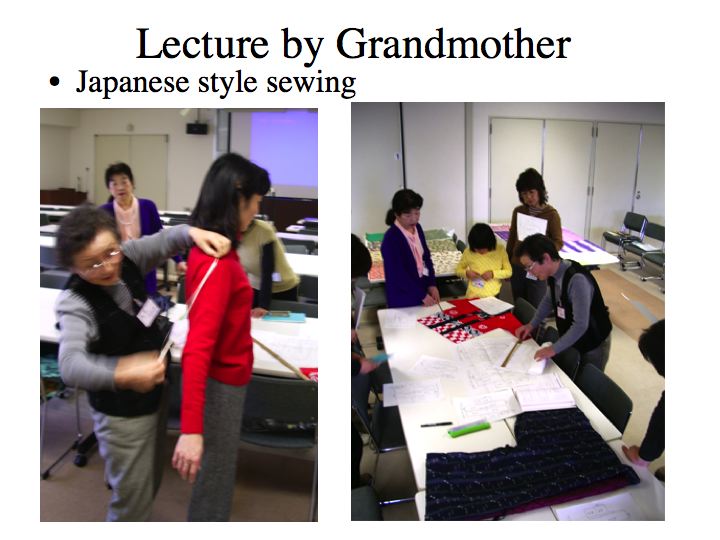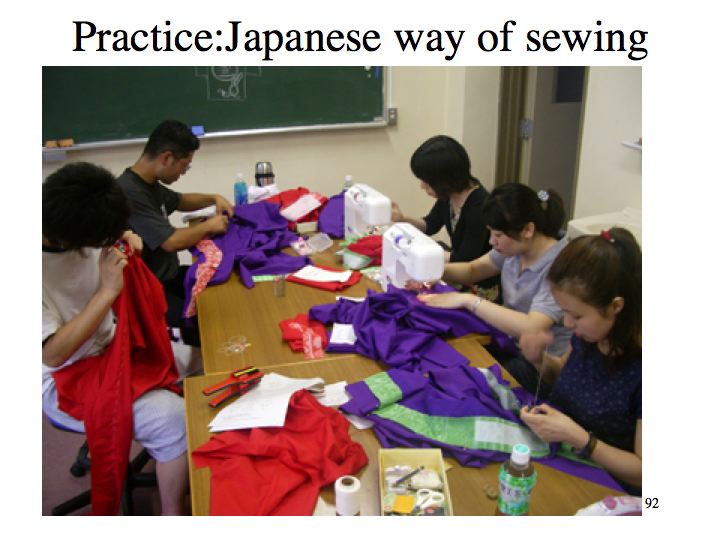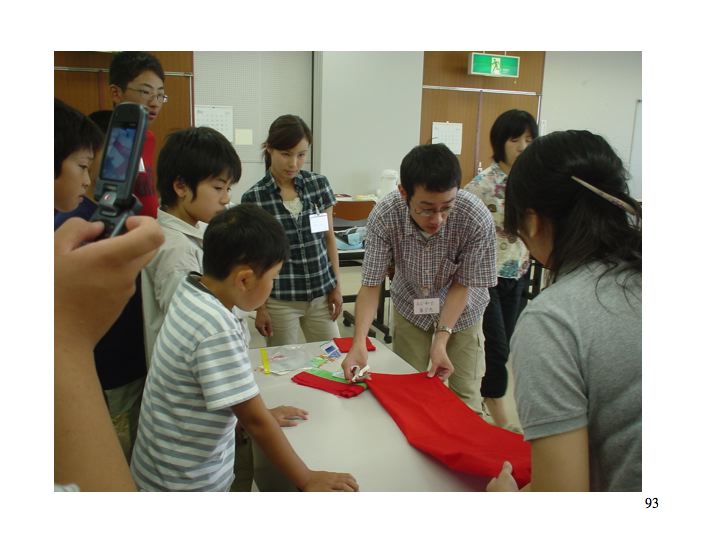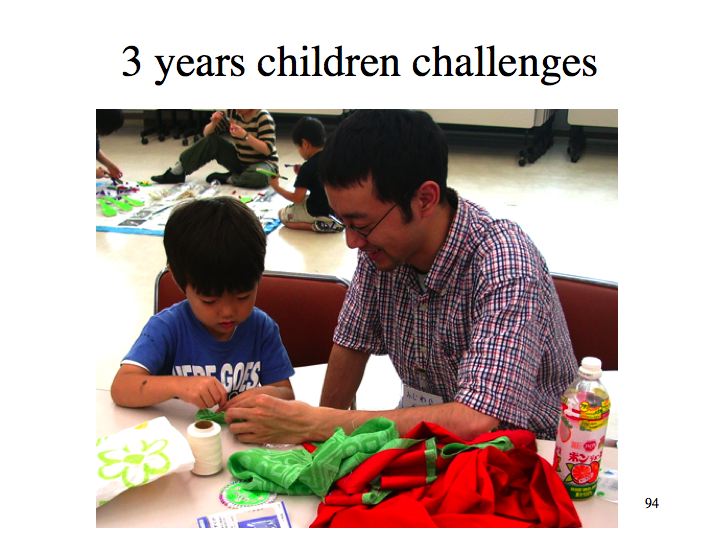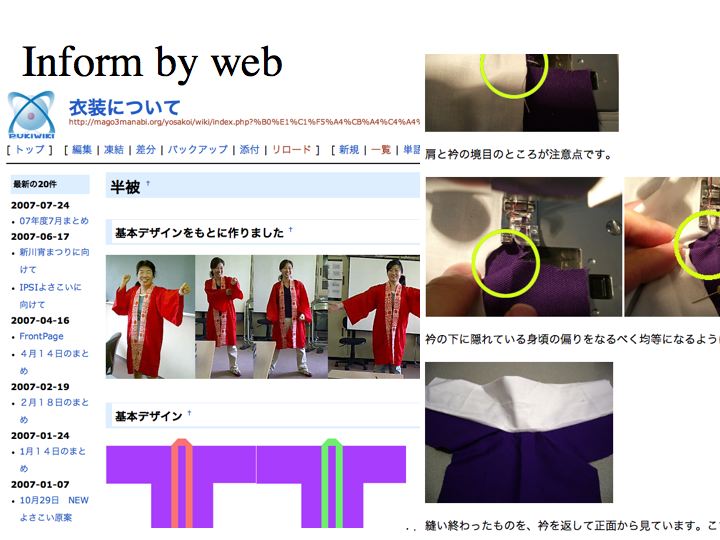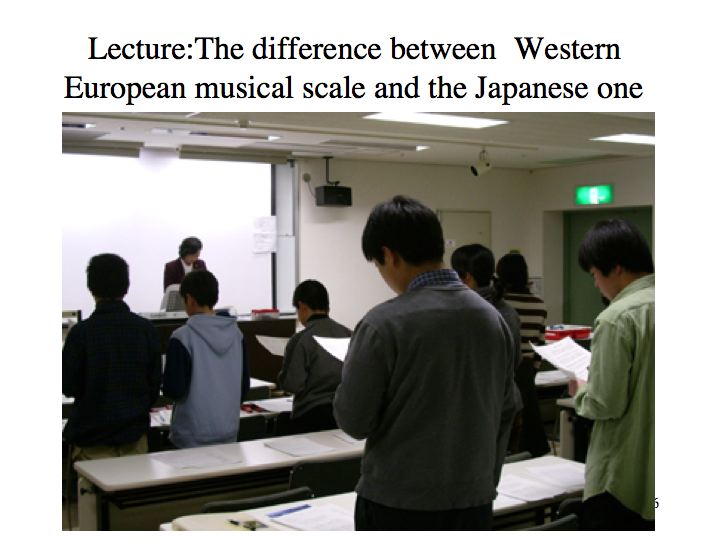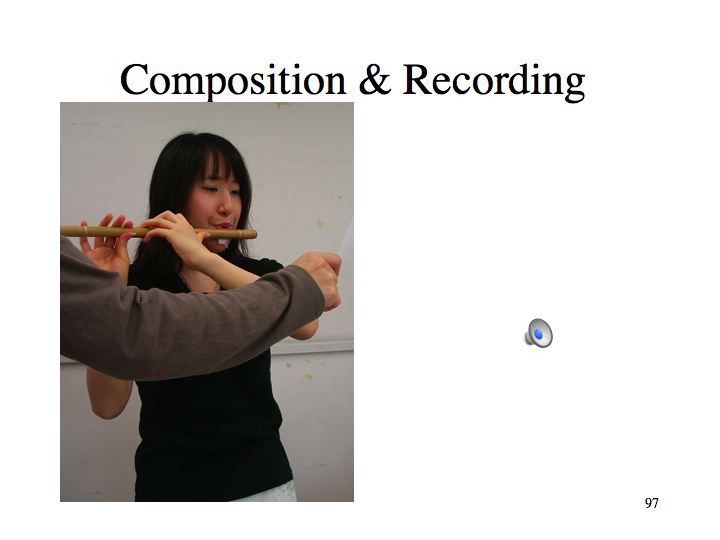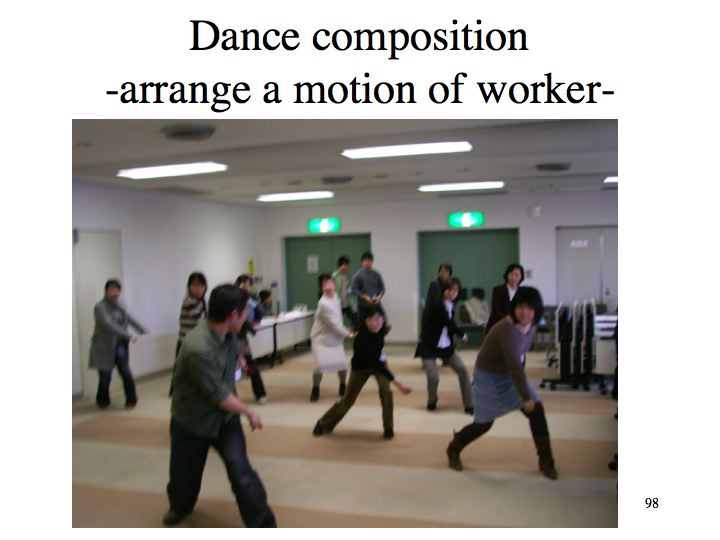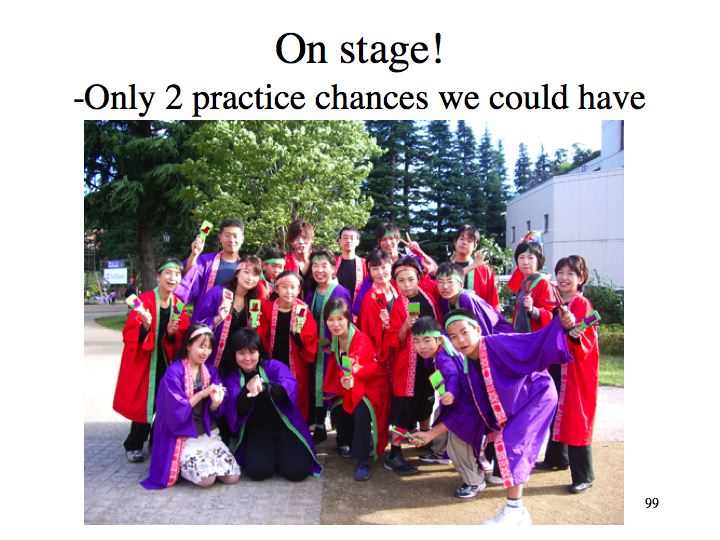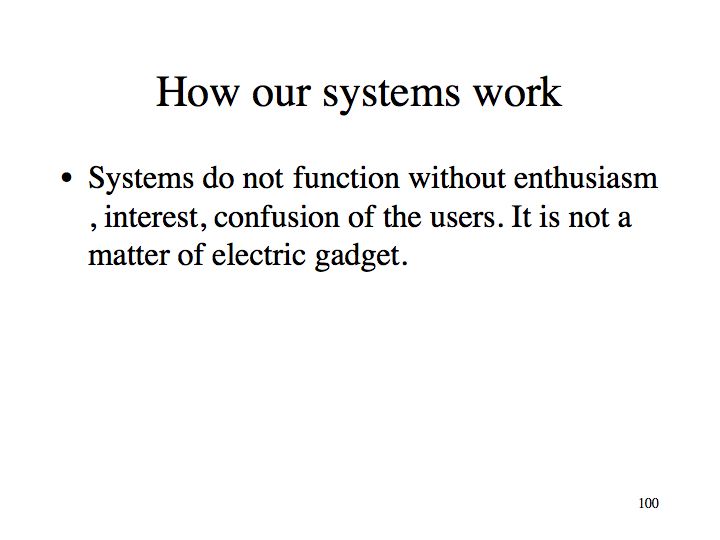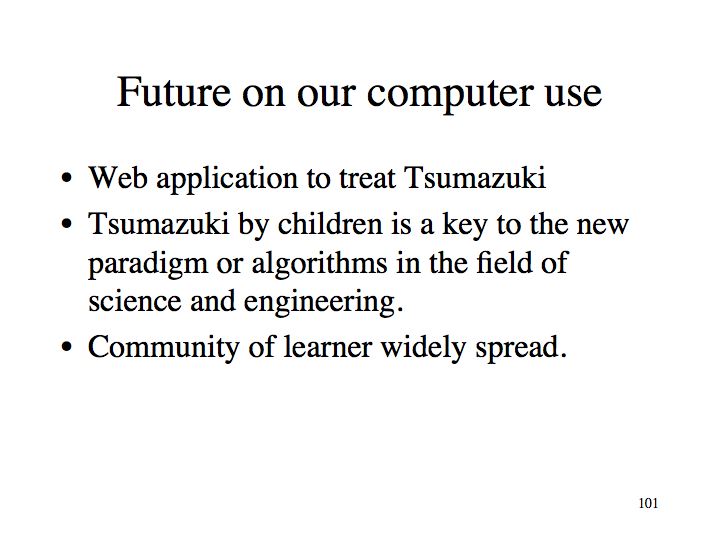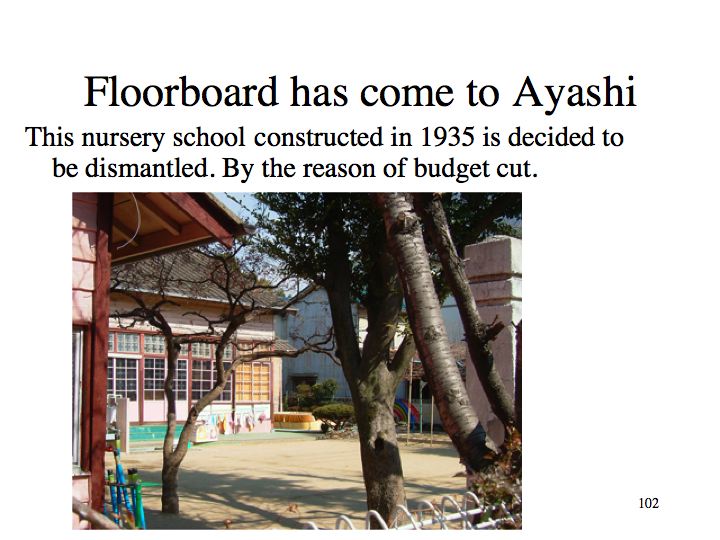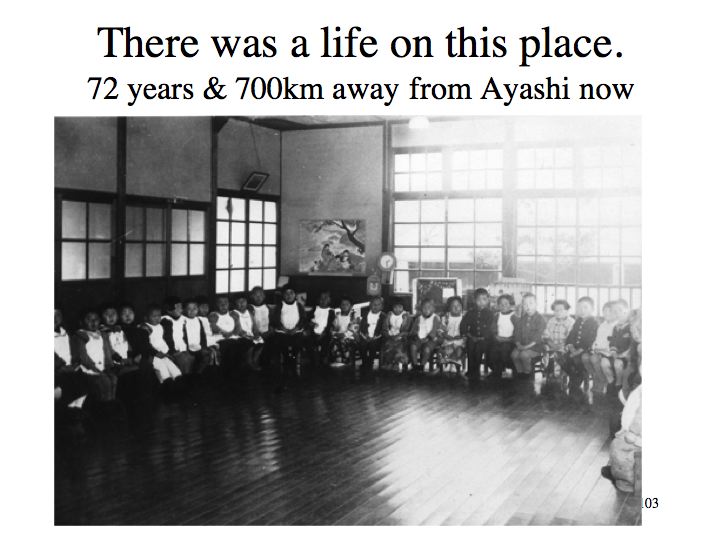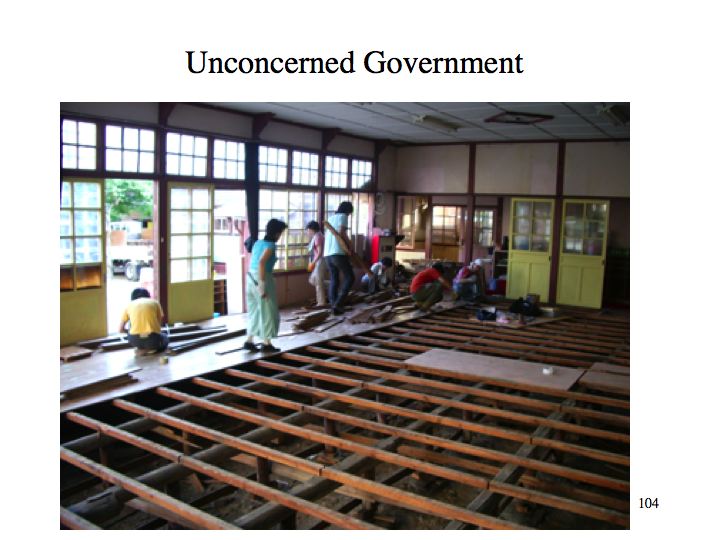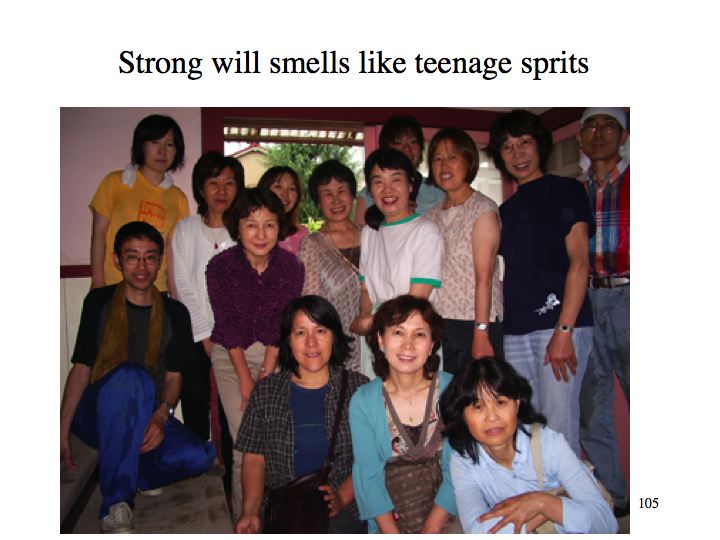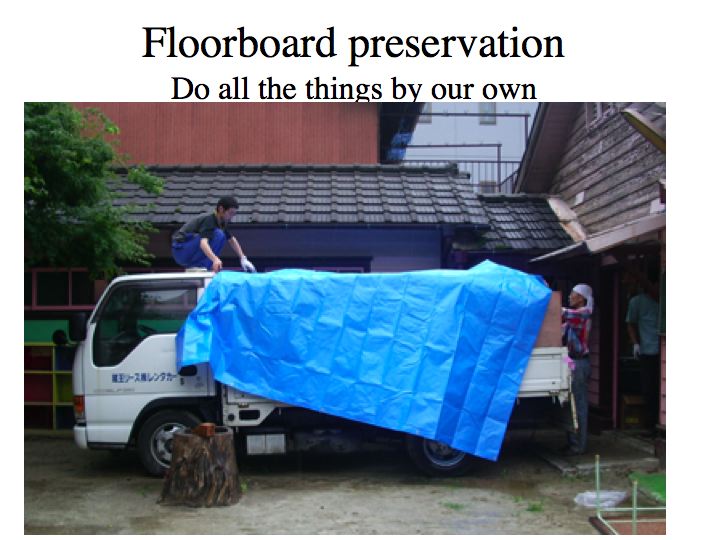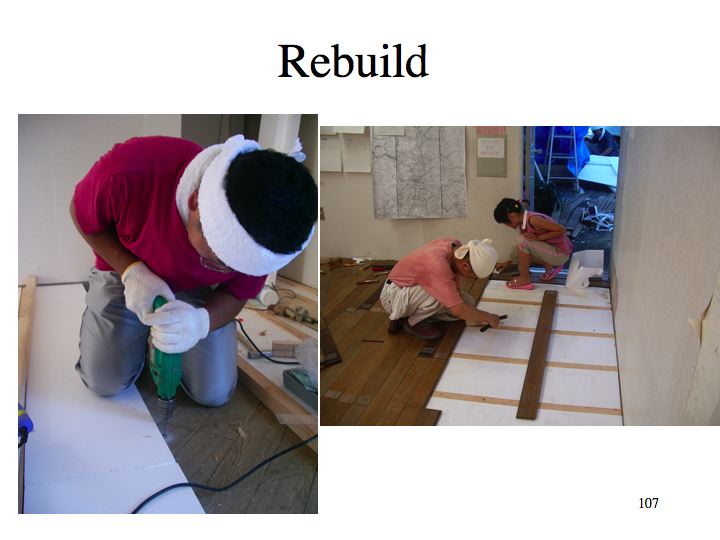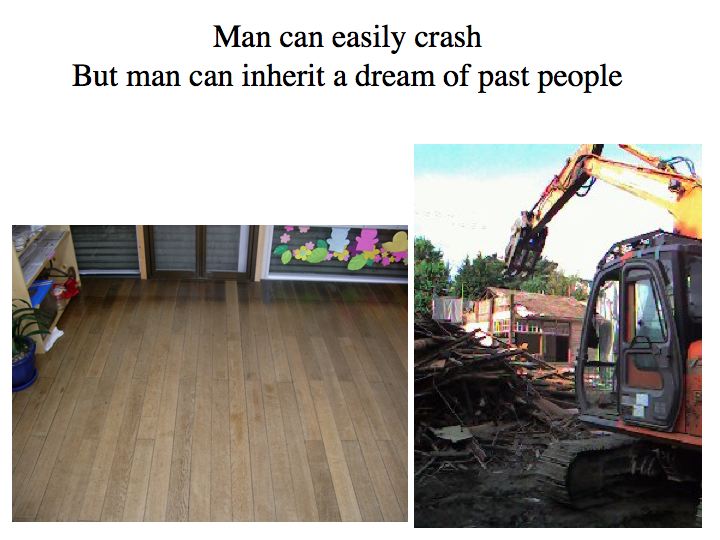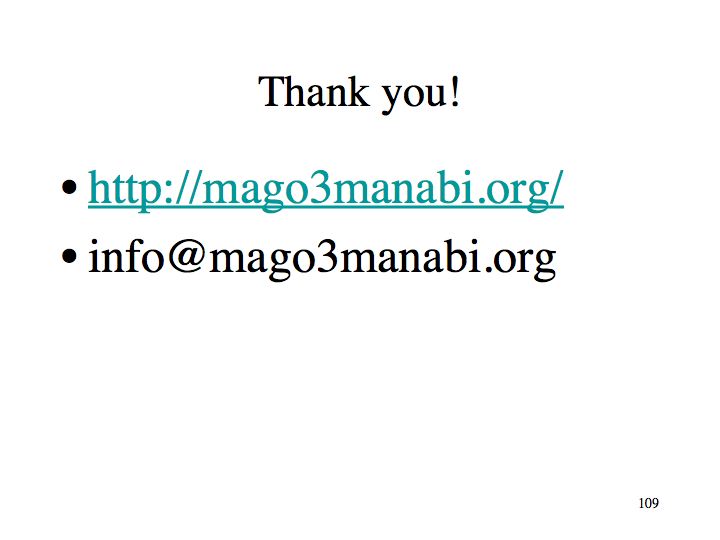MAGO3 activities
Table of contents-Quality of life(2007.8.20)
-Describe a future by Tumazuki(slide 2007.10)
-See "historyof our activity". You can see both recent and previous activities with images.
Quality of Mind: An attempt to the lifelong learning
@@\\Our Project :MAGO3 in Sendai
Yoshiko MOTOYA Osaka Joshi College, Japan1 URASHIMA TARO is a Japanese old tale handed down from the past about 1300 years ago. The tale is that, when Taro came back to the hometown from the happy days of Ryuugu-jo (a Palace laid at the bottom of the sea ), he found that his hometown had quite changed. 300 years had already passed. Disappointed he opened the Tamatebako (a present from the queen), and at an instant he changed to an old man with white beard.
At the beginning of the 20th century, Albert Einstein found the theory of relativity of space-time. We find that from an old age people have had the dream of space-time, and transmitted various tales from generation to generation. This fact deserves us as the treasure in education. People have held out their dream about the world by their own will and imagination.
2 At the latest IPSI-Miyagi Meeting, we have played some scenes out of the NOH "Soushi Arai-Komachi" (IPSI-Miyagi University of Education: Meeting for Information and Education). NOH is the oldest stage art in Japan and in the world with a history of more than six hundreds of years. NOH is a drama and performance which is consisted of dancing, instrumental playing and chanting. In this story Komachi (the heroin) forgives Kuronushi (a support), who eavesdropped her work of WAKA (classical Japanese poetry) to play a trick on her. But when the plagiarism was detected, Komachi permitted his crimec In honor of WAKA and in praise of her courage to permit his mistake, this drama has also been loved from age to age. We think this fact is surely 'Education'.
In Education it is important for the teacher that he/she should have the dream and hand down to pupils the dream of the past. It is also important for pupils to learn the cultural heritages of the old age. Education is not only a communication of knowledge, but an attempt to urge the pupils will and desire to the true heritages.
3 Two years ago, we have organized a project named "MAGO3" (lifelong learning project from grandparents to grandchild). Our standpoint is that learners should pursue their own subject by themselves, and improve their quality of mind. MAGO3 now has three workshops on Environment, Peace, and History (NOH workshop, Yosakoi dance w. and Drama w. till 2007), and three classes (children class, adulthood class and children-adult class).
By these workshops, we have three aims.
First, we try to communicate the traditional Japanese culture to feel the will and the imagination of the past people.
Second, we should think our own life by having interest to the social, economical, political life of our region, and inherit the regional popular culture.
Third, we will cultivate the soft ability of thinking which manages both real and virtual, and achieves our self realization through the free attempts for example to the presentation of plays.
Our classes have three characteristics.
First, children learn among various aged friends through the various activities and executions.
Second, adults should learn advanced studies and arts, because for almost adults 'liberal studies' are left behind in the course of their career life. They should also be acquainted themselves with the activities of children.
Third, learners should analyze their own 'stumbles'. They must go ahead by their own judgment and behavior to the advanced attempts.
In the examinations we apply the system of analysis combined with pretest - teaching - recognition. We always make good use of computer, and disclose the process of research and the results on webs. Our staffs always discuss with themselves over the matter on web, and share their common cognitions.
4 The key to the creative education will depend on how we create a command of the computer. The world of intelligence and information is consisted with three 'dimensions'. The first dimension is 'letters', by having letters mankind could have their knowledge largely expanded. The second dimension is various 'data' and 'schema', such as figures, tables, drawings, and expressions by physical movement. And the information gained by computer will be the third dimension. Because computer has almost endless possibilities in the world of intelligence, and it enables us to create quite new communications.
It is important for us to take notice of the fact that only our will enables the possibility of full use of these three dimensions. Especially in our action, to meet the demands for advanced trials in education, it is decisive for our staffs to devise the system of a new effective project using these three dimensions.
5 Man must learn the best content by the best and first class researchers and artists. It is important for learners to experience 'the real thing'. We pursue to plan the first level lectures and lessons, and to appreciate top performances. But this is not always possible, and in such case we can use various media. Previously it was difficult to appreciate worldwide artists and works of art, but today we are surrounded by countless top revel information.
But however the model is first class, the learning will not have full progress unless the learner actually practices for him/herself. It is important that how a man/woman at the side of being educated has the will and motive to the practice. Our program of pretest - teaching - recognition has in this point great merits that he/she brings out the motivation to self-recognition.
6 We have started our lifelong education program under the following policy. First, we should start from the actual conditions of cognition by learners (pretest). Second, our teaching should correspond to these actual conditions, arouse the learners to notice their meeting with setbacks. Third, after the teaching we examine the cognitive advance using the same material at the pretest, and the results of our teaching must be carefully analyzed. In these ways we will try to let the learners overcome difficulties by their own efforts.
7 We make the most of computer and web to analyze the data, accumulate the results, and discuss among the staffs. On our homepage: http://mago3manabi.org, we make our activities public.
